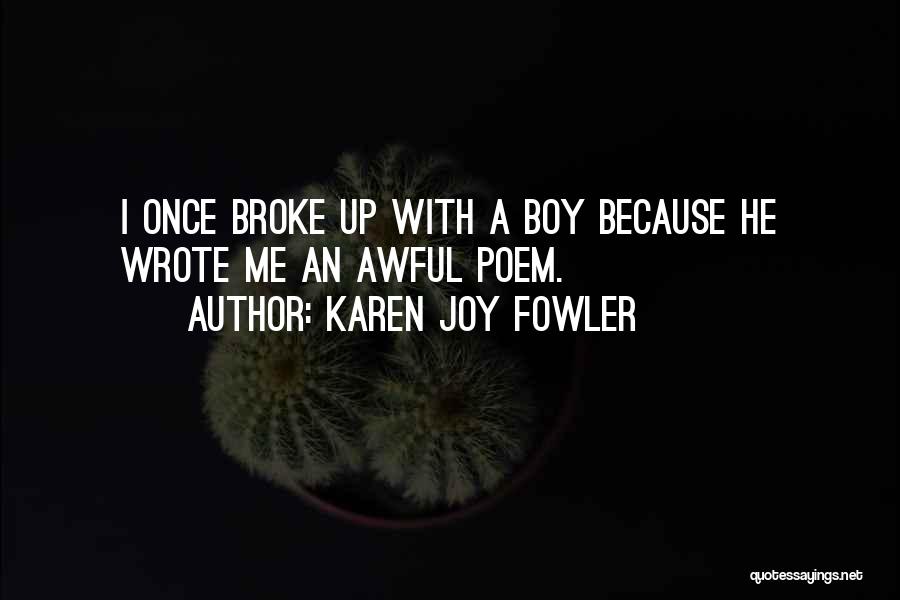Once Wrote Quotes & Sayings
Enjoy reading and share 100 famous quotes about Once Wrote with everyone.
Top Once Wrote Quotes
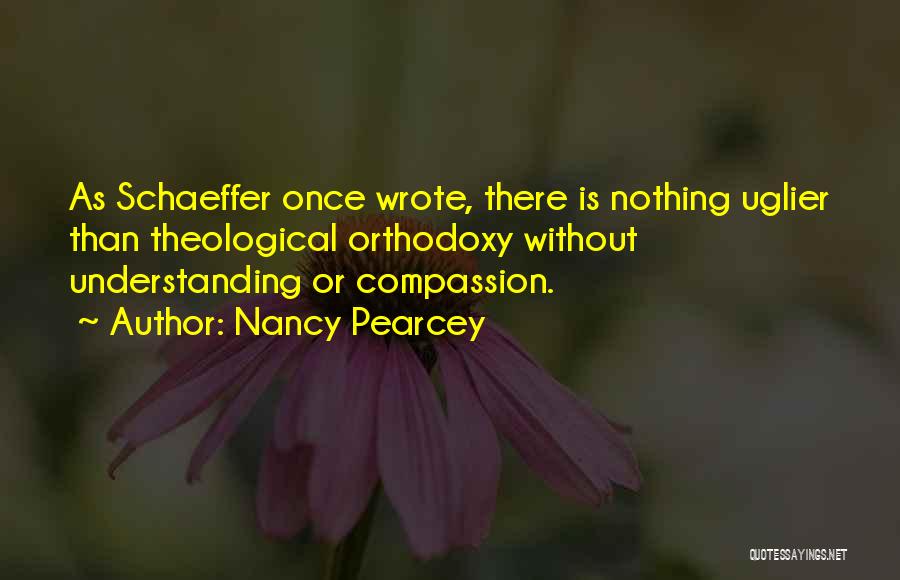
As Schaeffer once wrote, there is nothing uglier than theological orthodoxy without understanding or compassion. — Nancy Pearcey
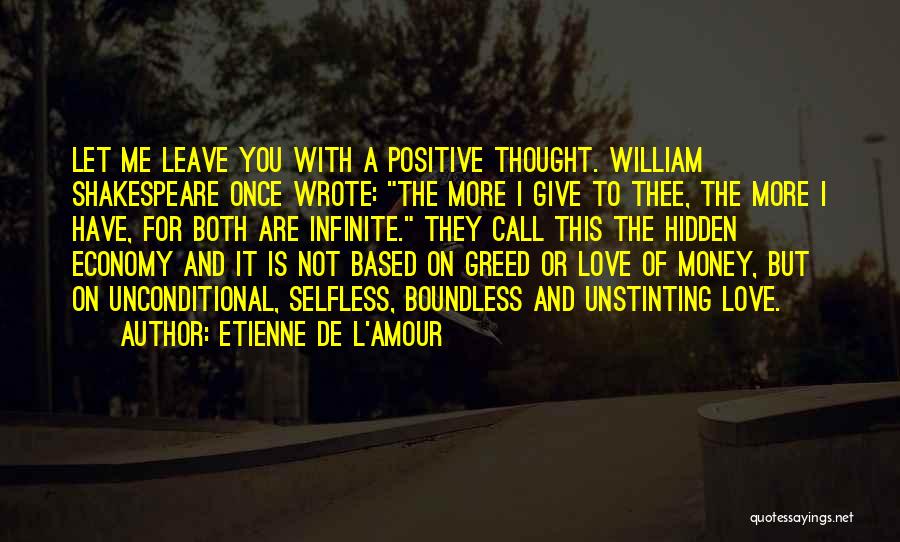
Let me leave you with a positive thought. William Shakespeare once wrote: "The more I give to thee, the more I have, for both are infinite." They call this the Hidden Economy and it is not based on greed or love of money, but on unconditional, selfless, boundless and unstinting Love. — Etienne De L'Amour
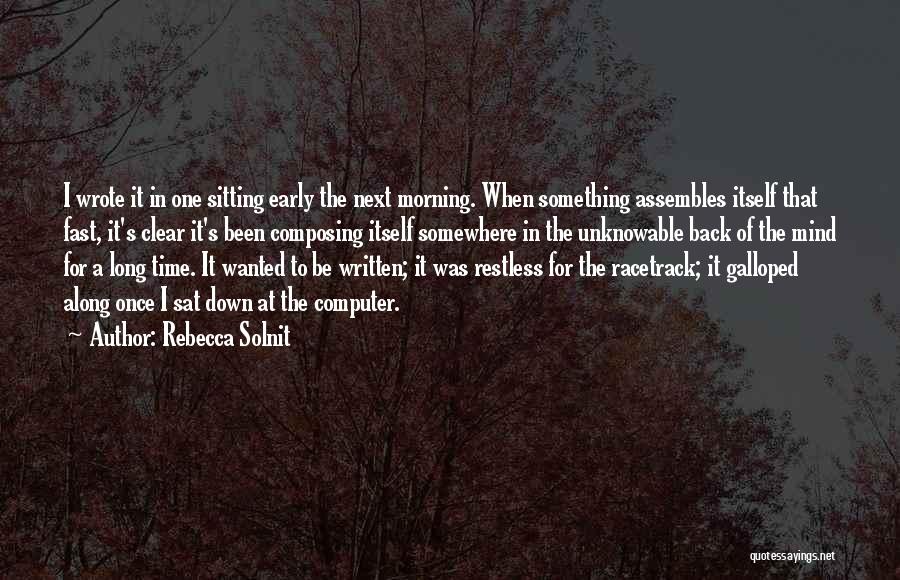
I wrote it in one sitting early the next morning. When something assembles itself that fast, it's clear it's been composing itself somewhere in the unknowable back of the mind for a long time. It wanted to be written; it was restless for the racetrack; it galloped along once I sat down at the computer. — Rebecca Solnit
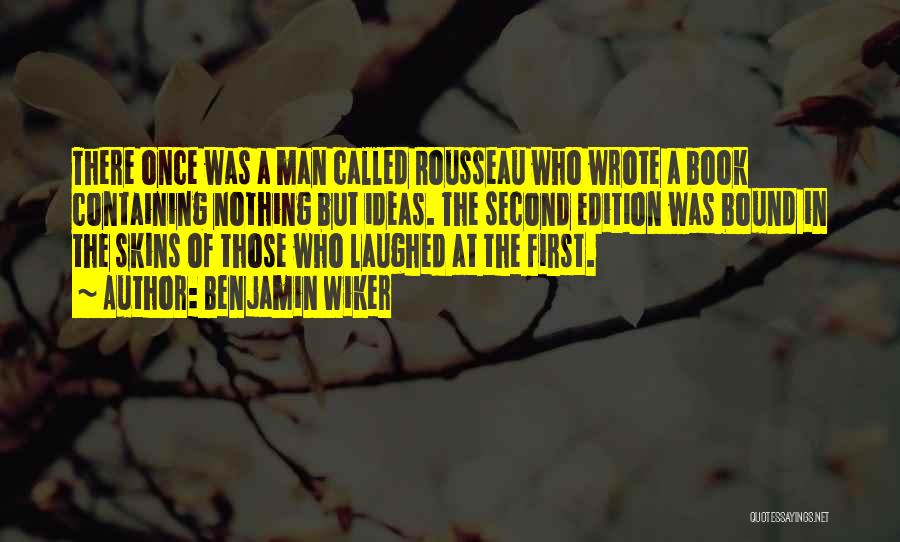
There once was a man called Rousseau who wrote a book containing nothing but ideas. The second edition was bound in the skins of those who laughed at the first. — Benjamin Wiker
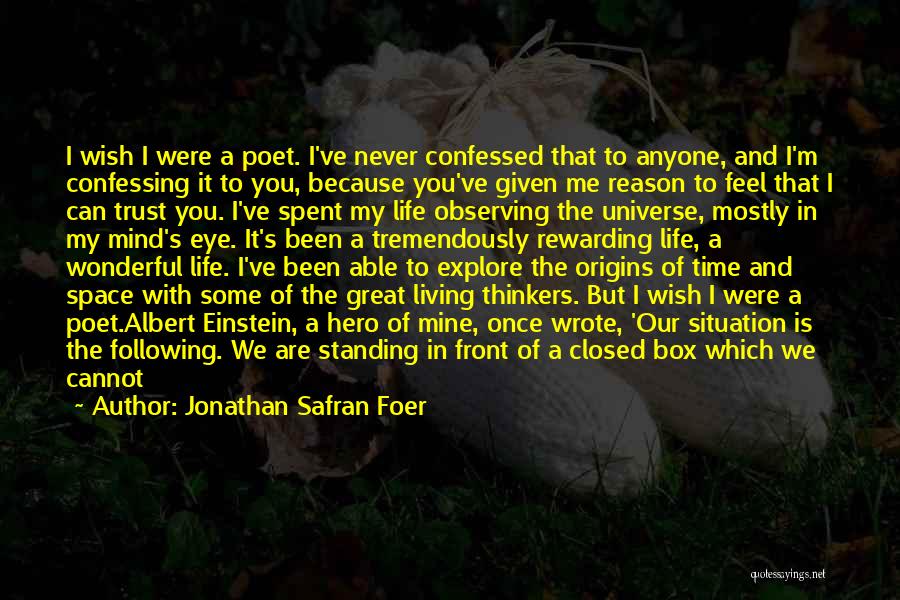
I wish I were a poet. I've never confessed that to anyone, and I'm confessing it to you, because you've given me reason to feel that I can trust you. I've spent my life observing the universe, mostly in my mind's eye. It's been a tremendously rewarding life, a wonderful life. I've been able to explore the origins of time and space with some of the great living thinkers. But I wish I were a poet.
Albert Einstein, a hero of mine, once wrote, 'Our situation is the following. We are standing in front of a closed box which we cannot open.'
I'm sure I don't have to tell you that the vast majority of the universe is composed of dark matter. The fragile balance depends on things we'll never be able to see, hear, smell, taste, or touch. Life itself depends on them. What's real? What isn't real? Maybe those aren't the right questions to be asking. What does life depend on?
I wish I had made things for life to depend on. — Jonathan Safran Foer
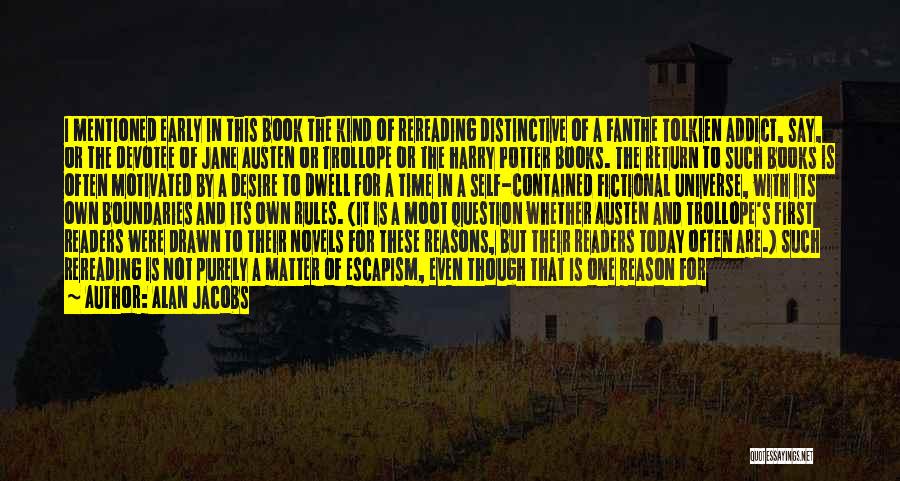
I mentioned early in this book the kind of rereading distinctive of a fan
the Tolkien addict, say, or the devotee of Jane Austen or Trollope or the Harry Potter books. The return to such books is often motivated by a desire to dwell for a time in a self-contained fictional universe, with its own boundaries and its own rules. (It is a moot question whether Austen and Trollope's first readers were drawn to their novels for these reasons, but their readers today often are.) Such rereading is not purely a matter of escapism, even though that is one reason for its attraction: we should note that it's not what readers are escaping from but that they are escaping into that counts most. Most of us do not find fictional worlds appealing because we find our own lives despicable, though censorious people often make that assumption. Auden once wrote that "there must always be ... escape-art, for man needs escape as he needs food and deep sleep." The sleeper does not disdain consciousness. — Alan Jacobs
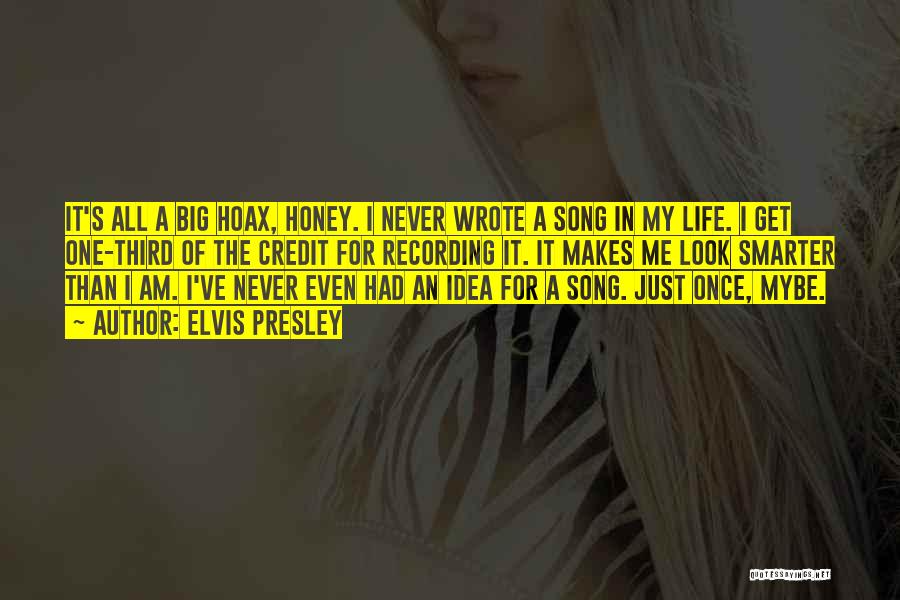
It's all a big hoax, honey. I never wrote a song in my life. I get one-third of the credit for recording it. It makes me look smarter than I am. I've never even had an idea for a song. Just once, mybe. — Elvis Presley
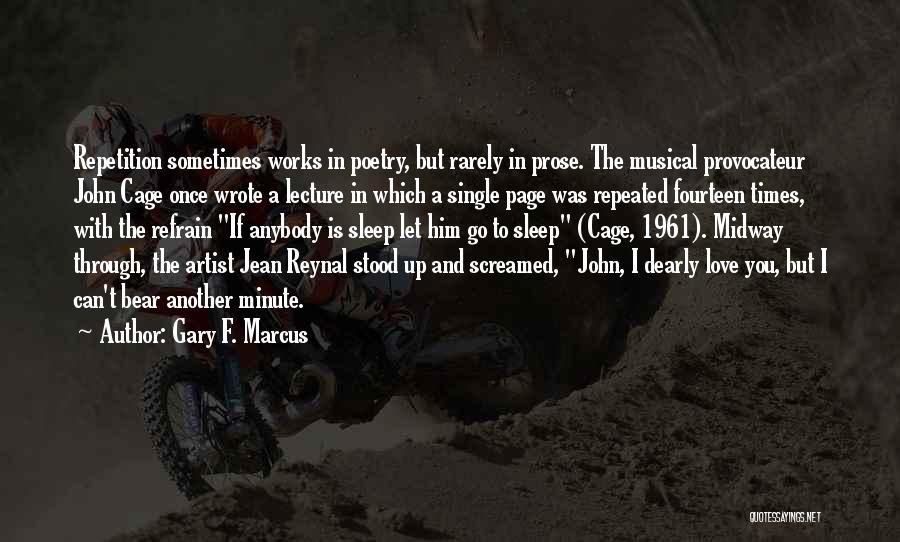
Repetition sometimes works in poetry, but rarely in prose. The musical provocateur John Cage once wrote a lecture in which a single page was repeated fourteen times, with the refrain "If anybody is sleep let him go to sleep" (Cage, 1961). Midway through, the artist Jean Reynal stood up and screamed, "John, I dearly love you, but I can't bear another minute. — Gary F. Marcus
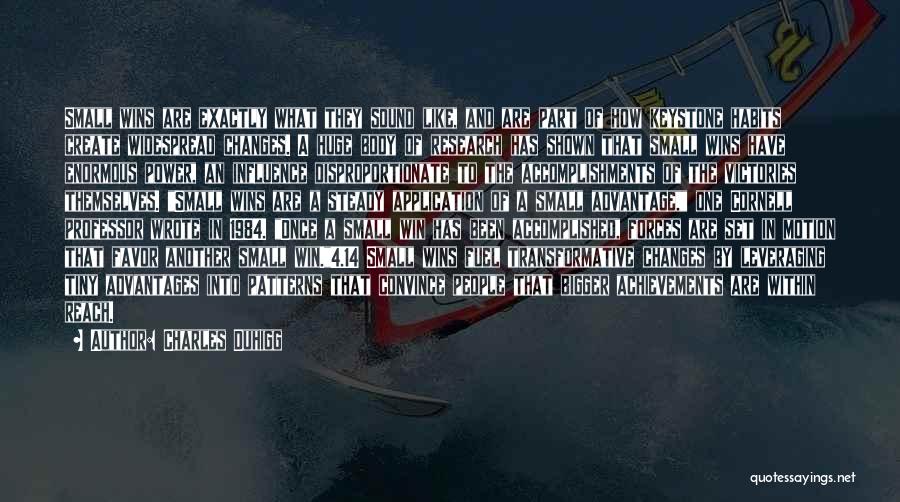
Small wins are exactly what they sound like, and are part of how keystone habits create widespread changes. A huge body of research has shown that small wins have enormous power, an influence disproportionate to the accomplishments of the victories themselves. "Small wins are a steady application of a small advantage," one Cornell professor wrote in 1984. "Once a small win has been accomplished, forces are set in motion that favor another small win."4.14 Small wins fuel transformative changes by leveraging tiny advantages into patterns that convince people that bigger achievements are within reach. — Charles Duhigg
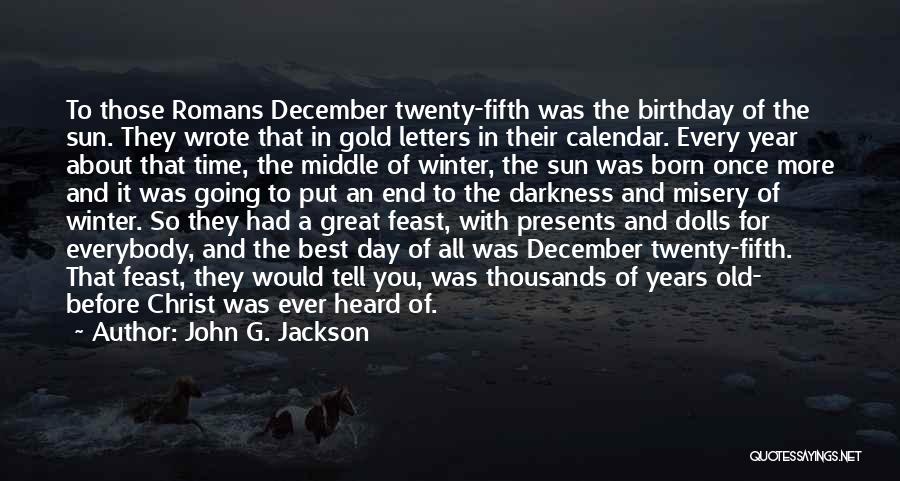
To those Romans December twenty-fifth was the birthday of the sun. They wrote that in gold letters in their calendar. Every year about that time, the middle of winter, the sun was born once more and it was going to put an end to the darkness and misery of winter. So they had a great feast, with presents and dolls for everybody, and the best day of all was December twenty-fifth. That feast, they would tell you, was thousands of years old- before Christ was ever heard of. — John G. Jackson

I am a woman with wings,' I once wrote and will revise these words again. 'I am a woman with wings dancing with other women with wings.' In a voiced community, we all flourish. — Terry Tempest Williams
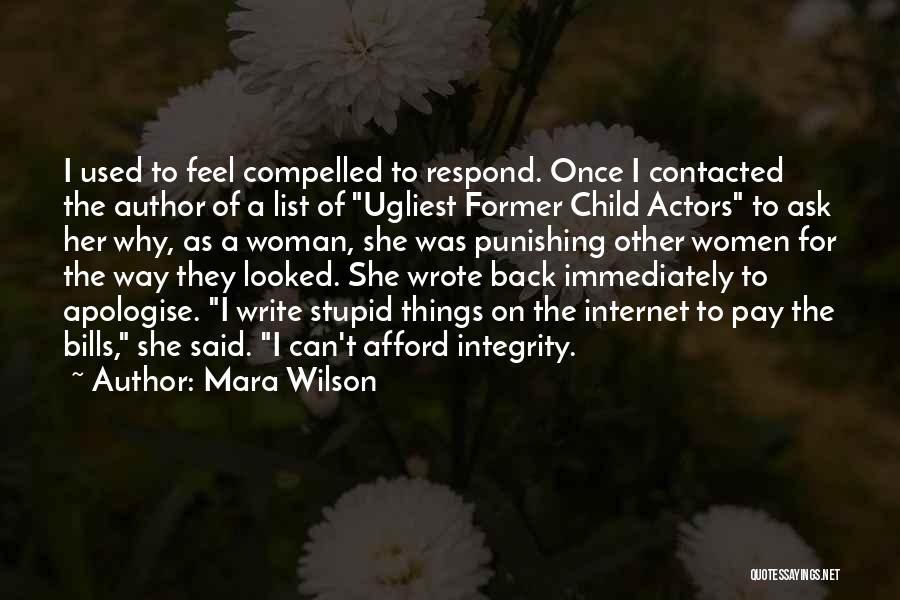
I used to feel compelled to respond. Once I contacted the author of a list of "Ugliest Former Child Actors" to ask her why, as a woman, she was punishing other women for the way they looked. She wrote back immediately to apologise. "I write stupid things on the internet to pay the bills," she said. "I can't afford integrity. — Mara Wilson
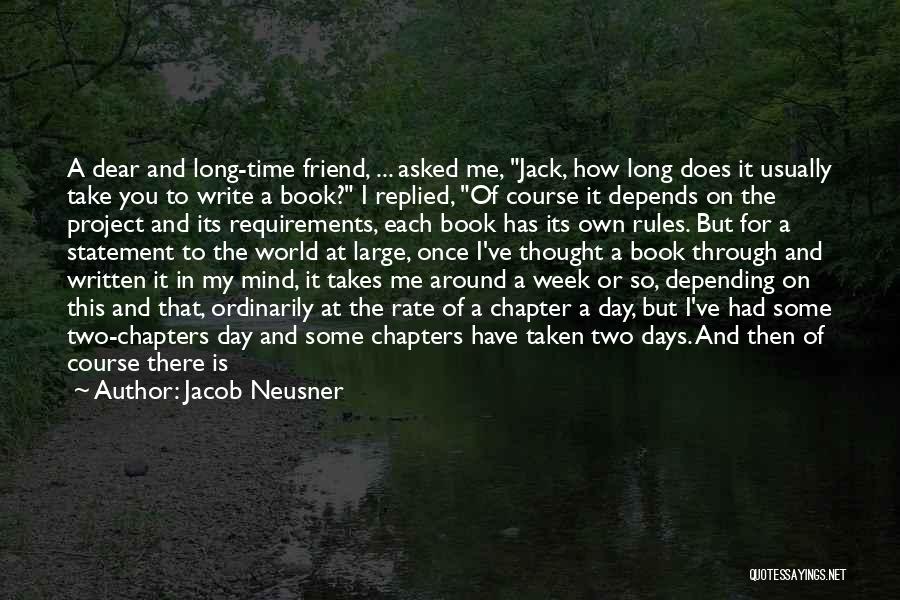
A dear and long-time friend, ... asked me, "Jack, how long does it usually take you to write a book?" I replied, "Of course it depends on the project and its requirements, each book has its own rules. But for a statement to the world at large, once I've thought a book through and written it in my mind, it takes me around a week or so, depending on this and that, ordinarily at the rate of a chapter a day, but I've had some two-chapters day and some chapters have taken two days. And then of course there is revision, but around a week is about right." He seemed surprised, and I was surprised by his surprise, so I thought, maybe I'm wrong. I went home and wrote this book, at the perfectly normal pace of a chapter a day, as usual ... — Jacob Neusner
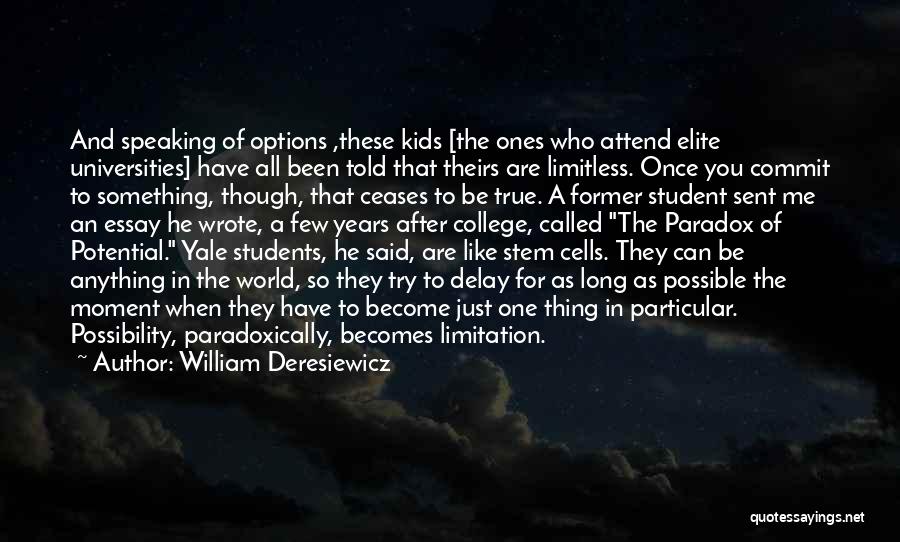
And speaking of options ,these kids [the ones who attend elite universities] have all been told that theirs are limitless. Once you commit to something, though, that ceases to be true. A former student sent me an essay he wrote, a few years after college, called "The Paradox of Potential." Yale students, he said, are like stem cells. They can be anything in the world, so they try to delay for as long as possible the moment when they have to become just one thing in particular. Possibility, paradoxically, becomes limitation. — William Deresiewicz
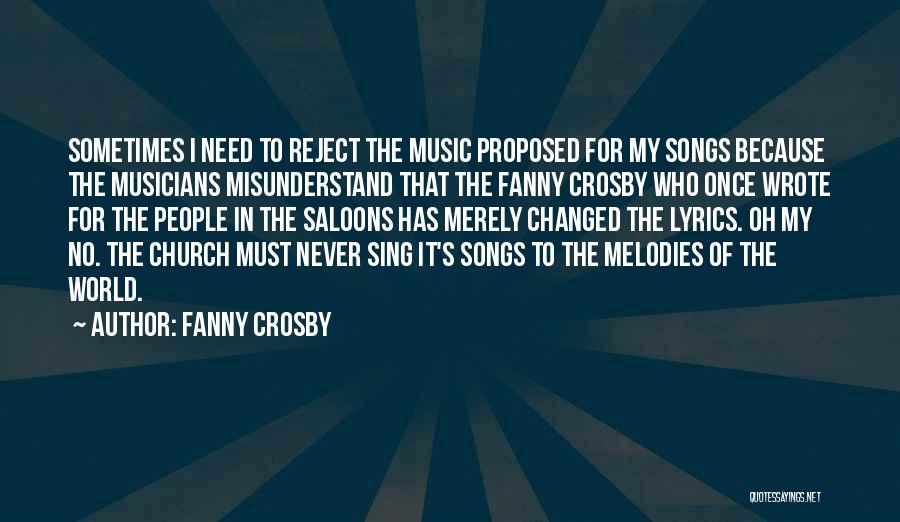
Sometimes I need to reject the music proposed for my songs because the musicians misunderstand that the Fanny Crosby who once wrote for the people in the saloons has merely changed the lyrics. Oh my no. The church must never sing it's songs to the melodies of the world. — Fanny Crosby
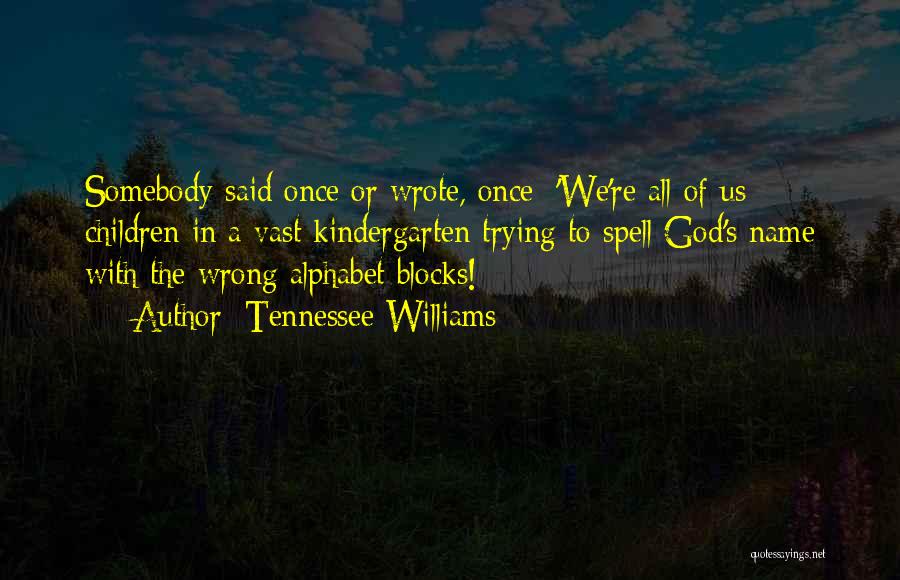
Somebody said once or wrote, once: 'We're all of us children in a vast kindergarten trying to spell God's name with the wrong alphabet blocks! — Tennessee Williams
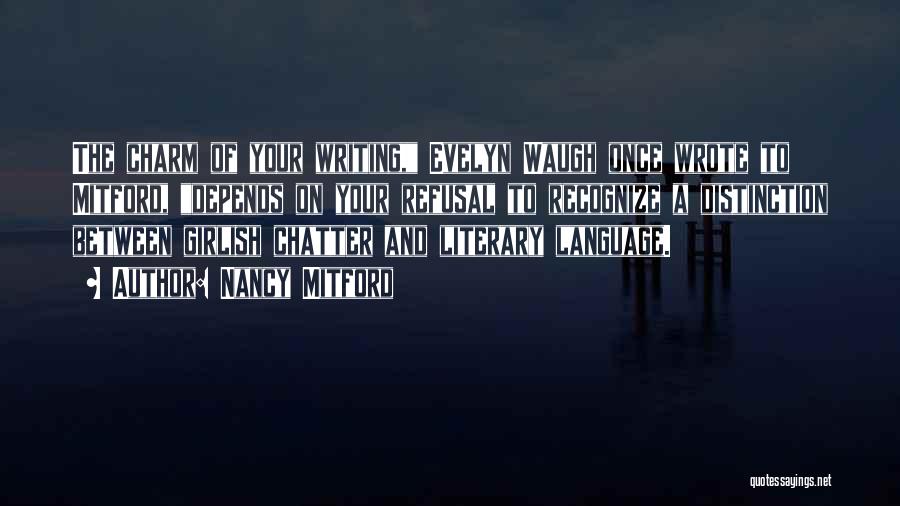
The charm of your writing," Evelyn Waugh once wrote to Mitford, "depends on your refusal to recognize a distinction between girlish chatter and literary language. — Nancy Mitford
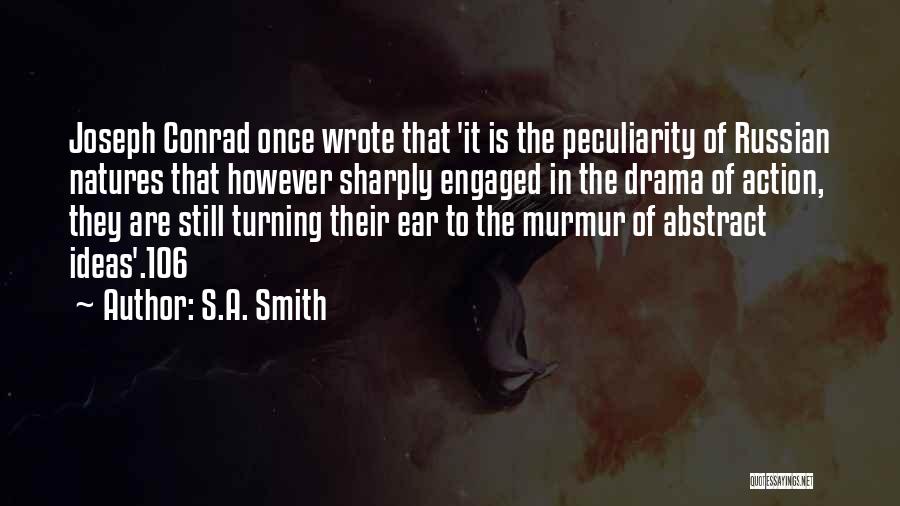
Joseph Conrad once wrote that 'it is the peculiarity of Russian natures that however sharply engaged in the drama of action, they are still turning their ear to the murmur of abstract ideas'.106 — S.A. Smith
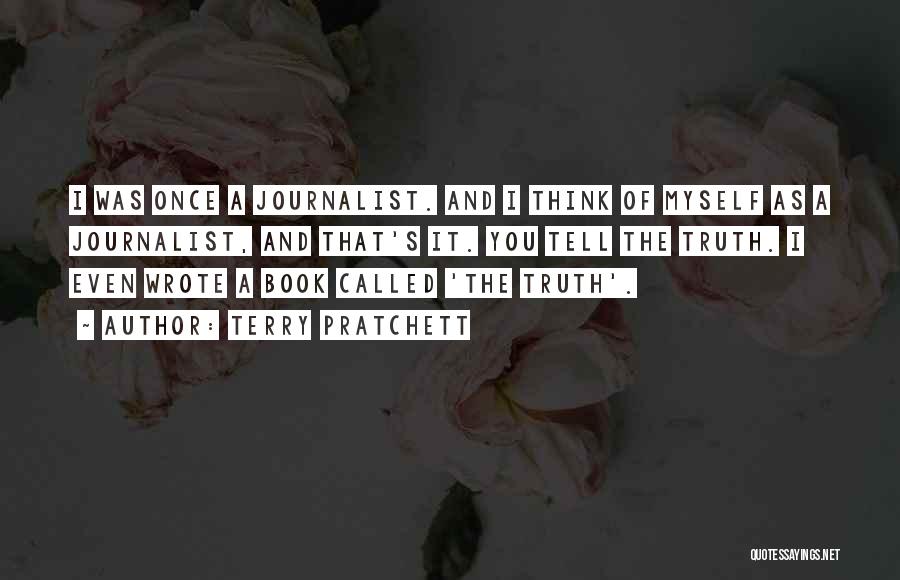
I was once a journalist. And I think of myself as a journalist, and that's it. You tell the truth. I even wrote a book called 'The Truth'. — Terry Pratchett
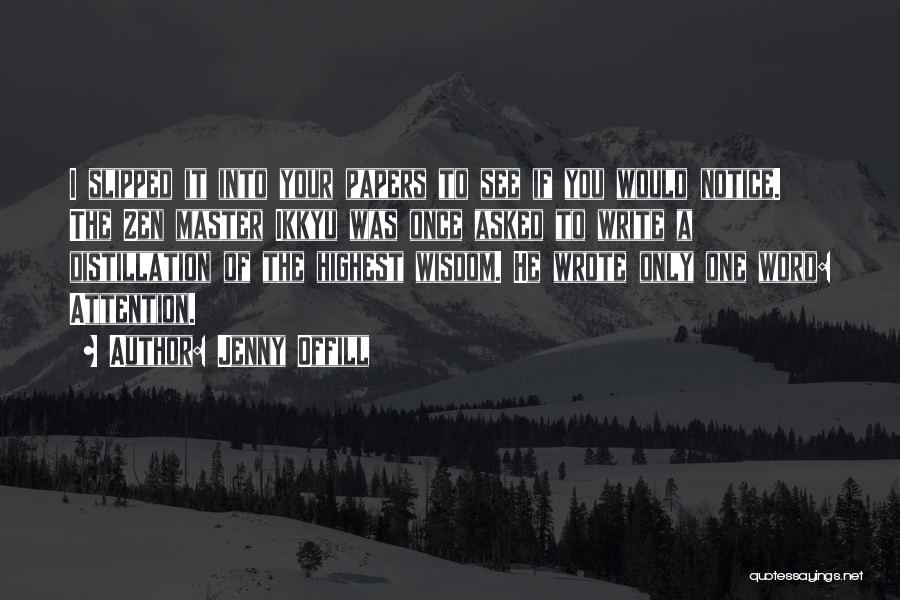
I slipped it into your papers to see if you would notice. The Zen master Ikkyu was once asked to write a distillation of the highest wisdom. He wrote only one word: Attention. — Jenny Offill
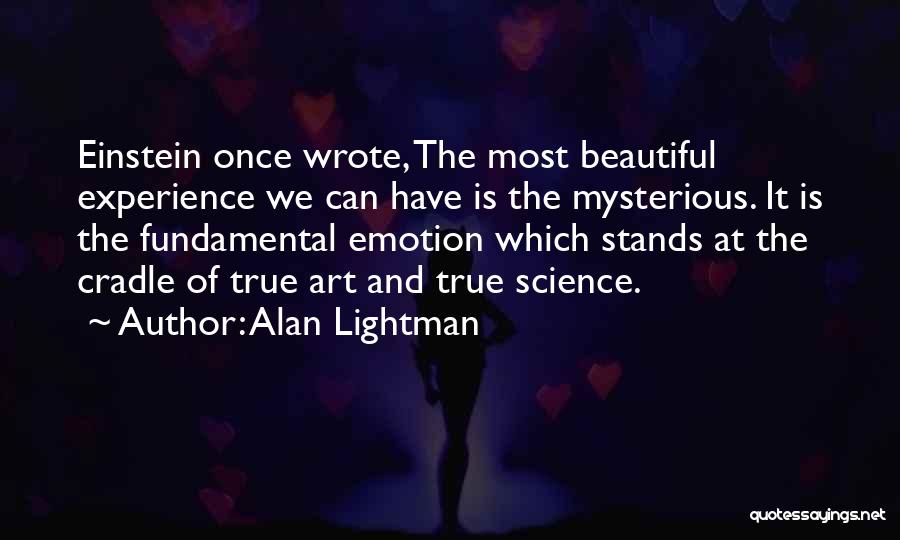
Einstein once wrote, The most beautiful experience we can have is the mysterious. It is the fundamental emotion which stands at the cradle of true art and true science. — Alan Lightman
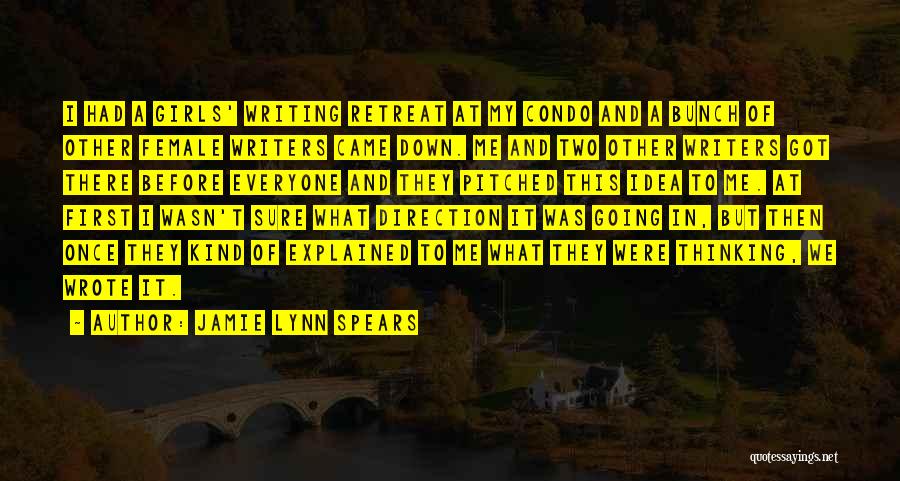
I had a girls' writing retreat at my condo and a bunch of other female writers came down. Me and two other writers got there before everyone and they pitched this idea to me. At first I wasn't sure what direction it was going in, but then once they kind of explained to me what they were thinking, we wrote it. — Jamie Lynn Spears
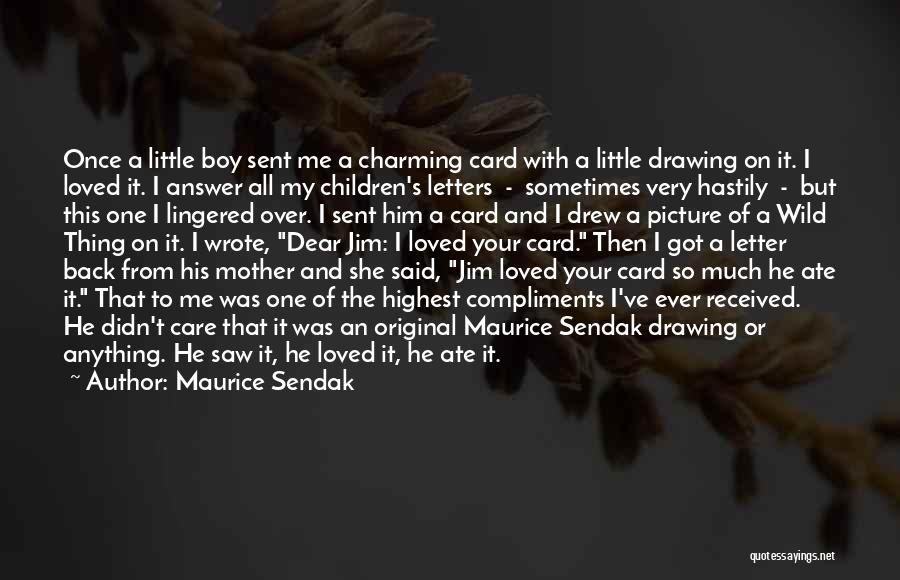
Once a little boy sent me a charming card with a little drawing on it. I loved it. I answer all my children's letters - sometimes very hastily - but this one I lingered over. I sent him a card and I drew a picture of a Wild Thing on it. I wrote, "Dear Jim: I loved your card." Then I got a letter back from his mother and she said, "Jim loved your card so much he ate it." That to me was one of the highest compliments I've ever received. He didn't care that it was an original Maurice Sendak drawing or anything. He saw it, he loved it, he ate it. — Maurice Sendak
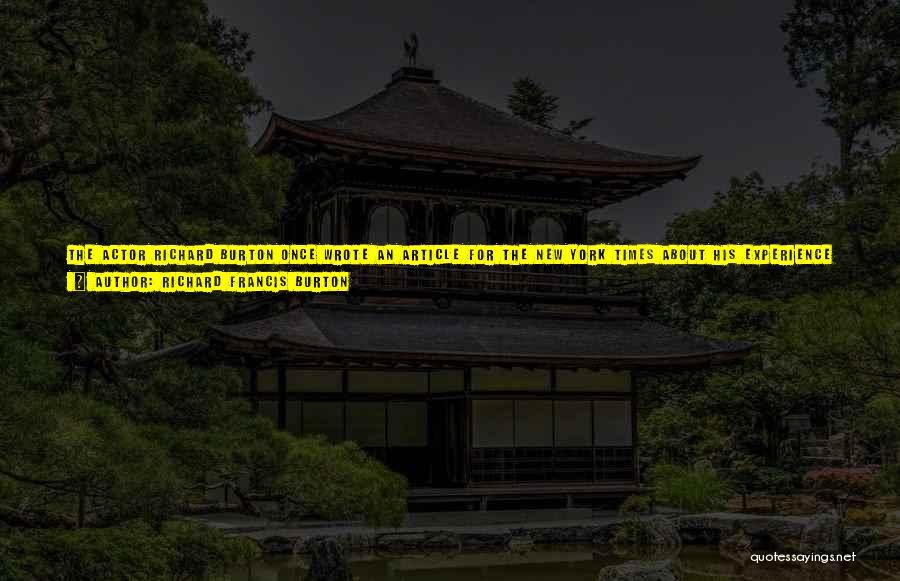
The actor Richard Burton once wrote an article for the New York Times about his experience playing the role of Winston Churchill in a television drama:
"In the course of preparing myself ... I realized afresh that I hate Churchill and all of his kind. I hate them virulently. They have stalked down the corridors of endless power all through history ... What man of sanity would say on hearing of the atrocities committed by the Japanese against British and Anzac prisoners of war, 'We shall wipe them out, everyone of them, men, women, and children. There shall not be a Japanese left on the face of the earth? Such simple
minded cravings for revenge leave me with a horrified but reluctant awe for such single
minded and merciless ferocity."
— Richard Francis Burton
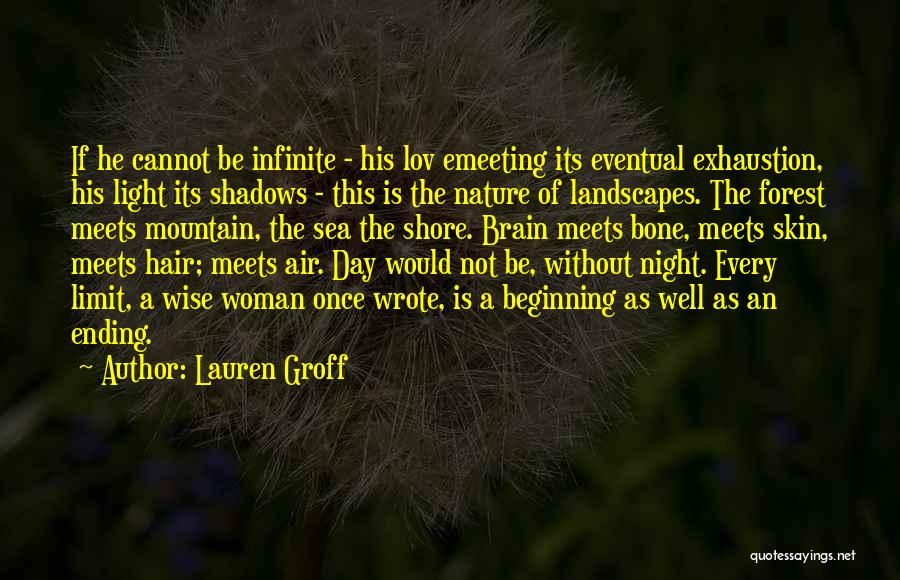
If he cannot be infinite - his lov emeeting its eventual exhaustion, his light its shadows - this is the nature of landscapes. The forest meets mountain, the sea the shore. Brain meets bone, meets skin, meets hair; meets air. Day would not be, without night. Every limit, a wise woman once wrote, is a beginning as well as an ending. — Lauren Groff
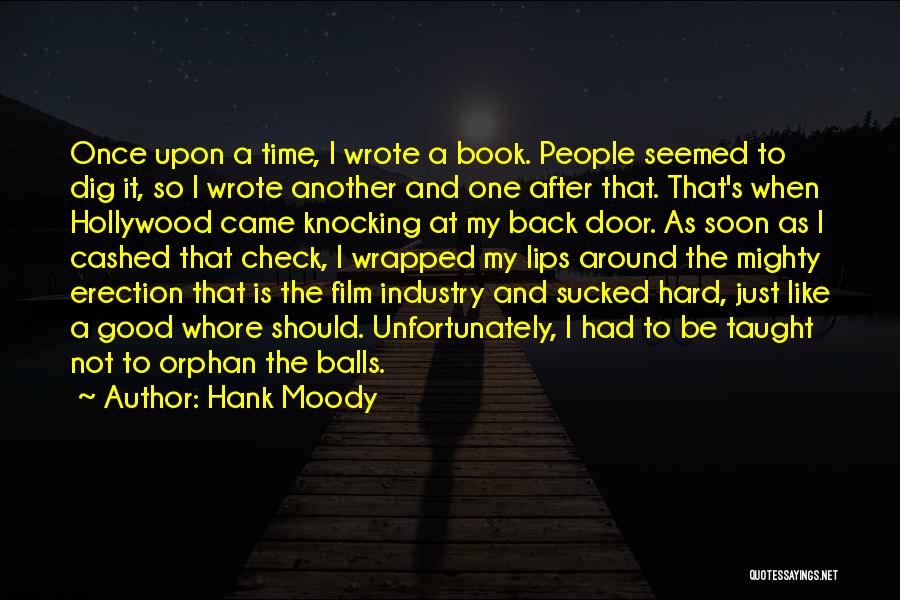
Once upon a time, I wrote a book. People seemed to dig it, so I wrote another and one after that. That's when Hollywood came knocking at my back door. As soon as I cashed that check, I wrapped my lips around the mighty erection that is the film industry and sucked hard, just like a good whore should. Unfortunately, I had to be taught not to orphan the balls. — Hank Moody
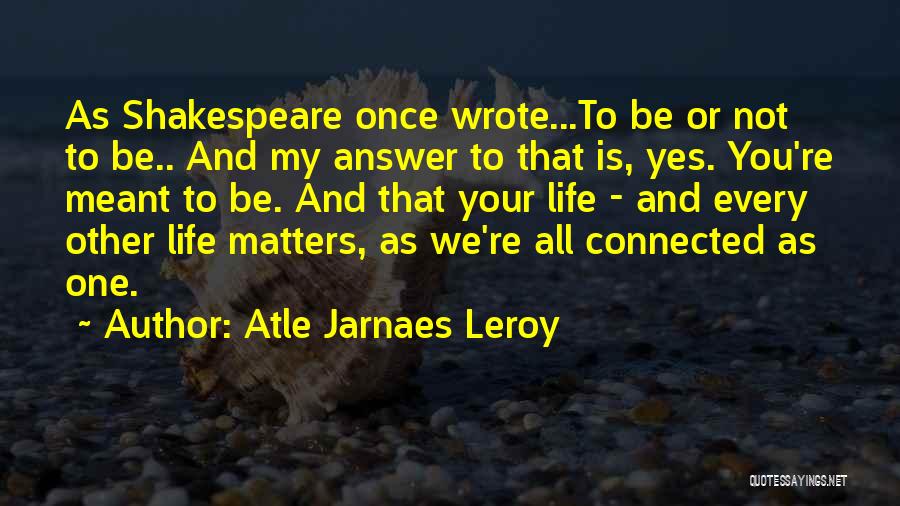
As Shakespeare once wrote...To be or not to be.. And my answer to that is, yes. You're meant to be. And that your life - and every other life matters, as we're all connected as one. — Atle Jarnaes Leroy
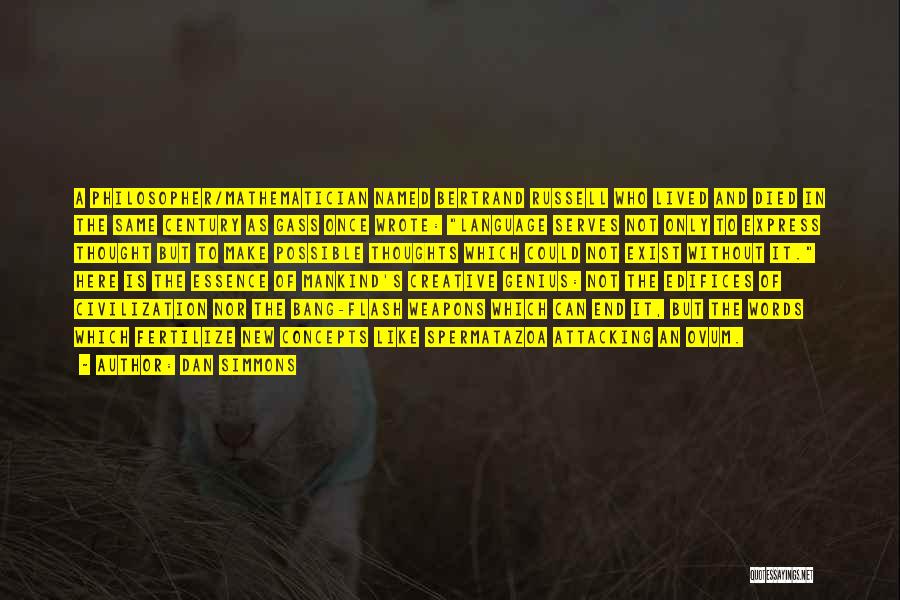
A philosopher/mathematician named Bertrand Russell who lived and died in the same century as Gass once wrote: "Language serves not only to express thought but to make possible thoughts which could not exist without it." Here is the essence of mankind's creative genius: not the edifices of civilization nor the bang-flash weapons which can end it, but the words which fertilize new concepts like spermatazoa attacking an ovum. — Dan Simmons
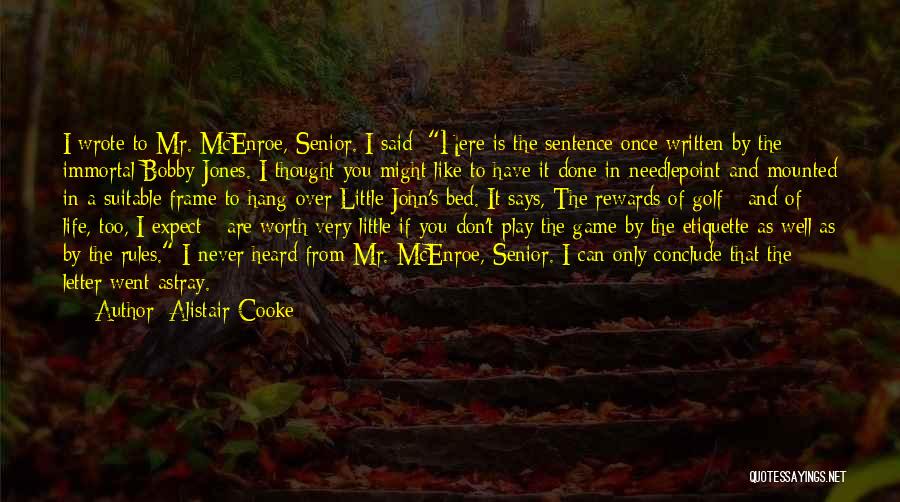
I wrote to Mr. McEnroe, Senior. I said: "Here is the sentence once written by the immortal Bobby Jones. I thought you might like to have it done in needlepoint and mounted in a suitable frame to hang over Little John's bed. It says, The rewards of golf - and of life, too, I expect - are worth very little if you don't play the game by the etiquette as well as by the rules." I never heard from Mr. McEnroe, Senior. I can only conclude that the letter went astray. — Alistair Cooke
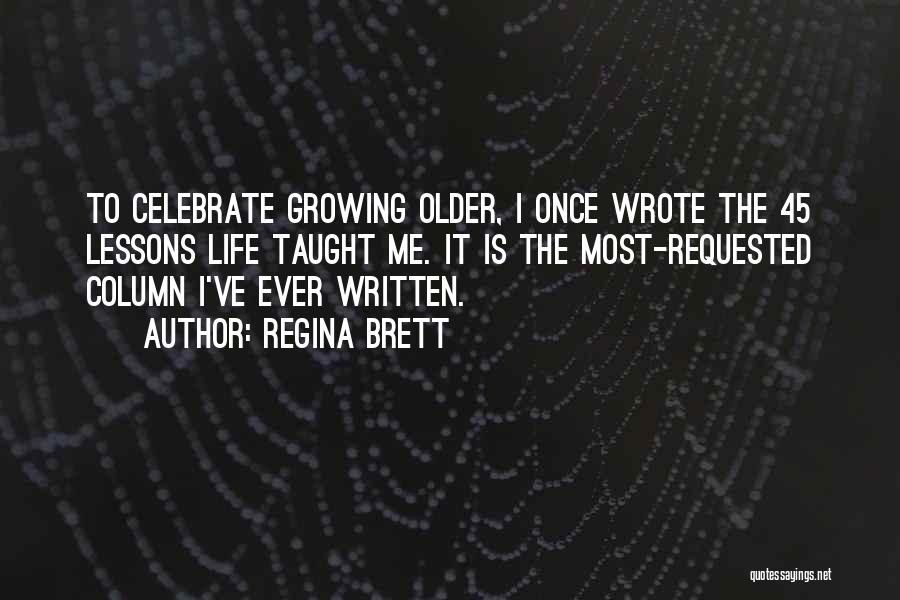
To celebrate growing older, I once wrote the 45 lessons life taught me. It is the most-requested column I've ever written. — Regina Brett
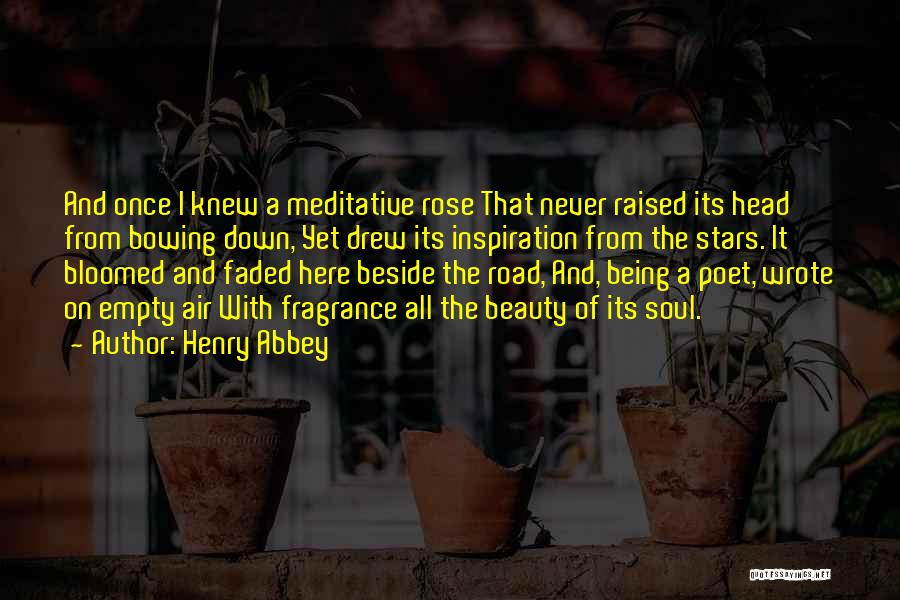
And once I knew a meditative rose That never raised its head from bowing down, Yet drew its inspiration from the stars. It bloomed and faded here beside the road, And, being a poet, wrote on empty air With fragrance all the beauty of its soul. — Henry Abbey
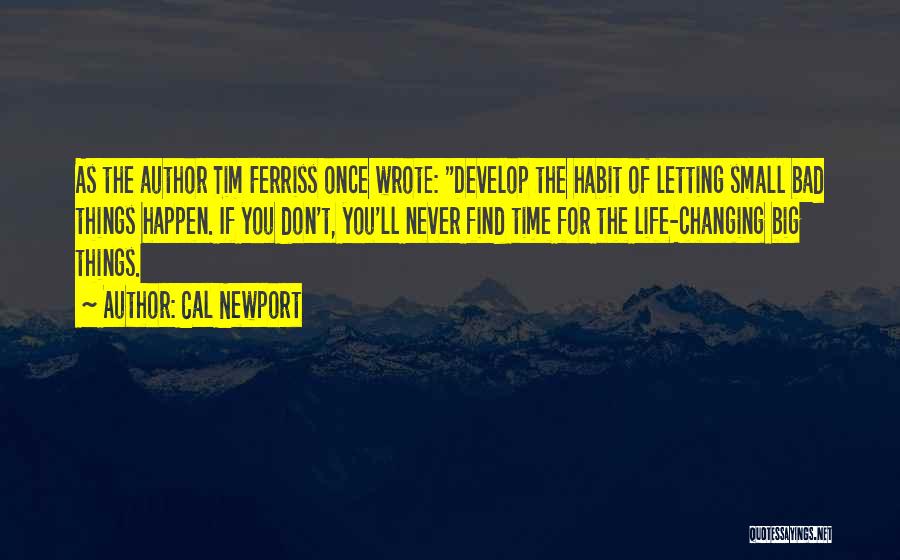
As the author Tim Ferriss once wrote: "Develop the habit of letting small bad things happen. If you don't, you'll never find time for the life-changing big things. — Cal Newport
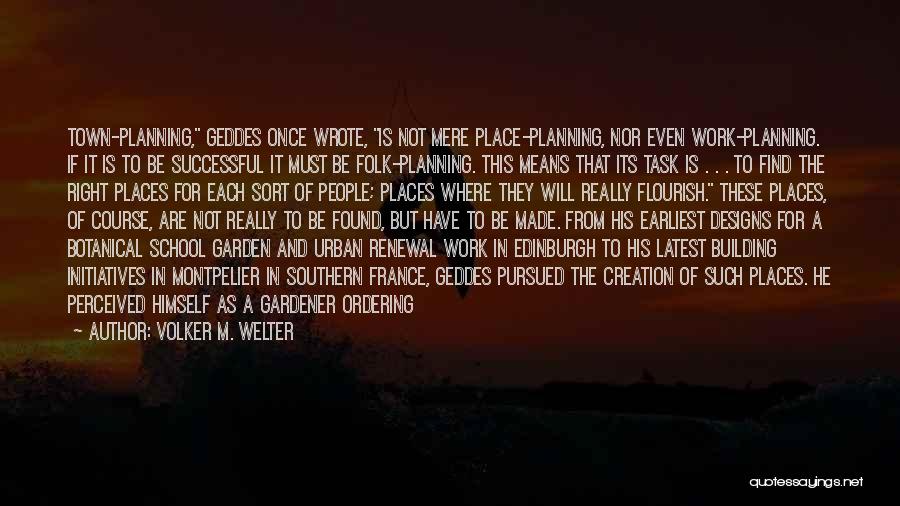
Town-planning," Geddes once wrote, "is not mere place-planning, nor even work-planning. If it is to be successful it must be folk-planning. This means that its task is . . . to find the right places for each sort of people; places where they will really flourish." These places, of course, are not really to be found, but have to be made. From his earliest designs for a botanical school garden and urban renewal work in Edinburgh to his latest building initiatives in Montpelier in southern France, Geddes pursued the creation of such places. He perceived himself as a gardener ordering the environment for the benefit of life. — Volker M. Welter
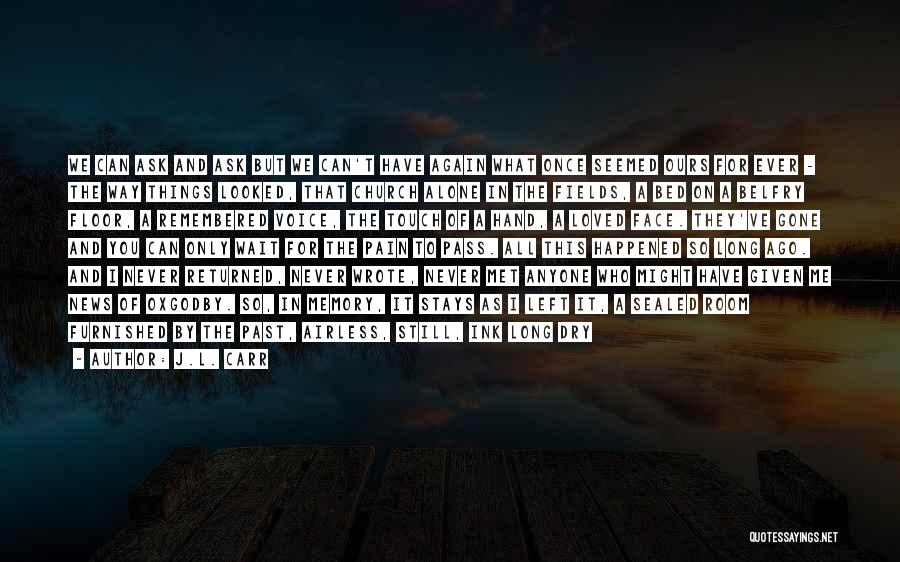
We can ask and ask but we can't have again what once seemed ours for ever - the way things looked, that church alone in the fields, a bed on a belfry floor, a remembered voice, the touch of a hand, a loved face. They've gone and you can only wait for the pain to pass.
All this happened so long ago. And I never returned, never wrote, never met anyone who might have given me news of Oxgodby. So, in memory, it stays as I left it, a sealed room furnished by the past, airless, still, ink long dry on a put-down pen.
But this was something I knew nothing of as I closed the gate and set off across the meadow. — J.L. Carr
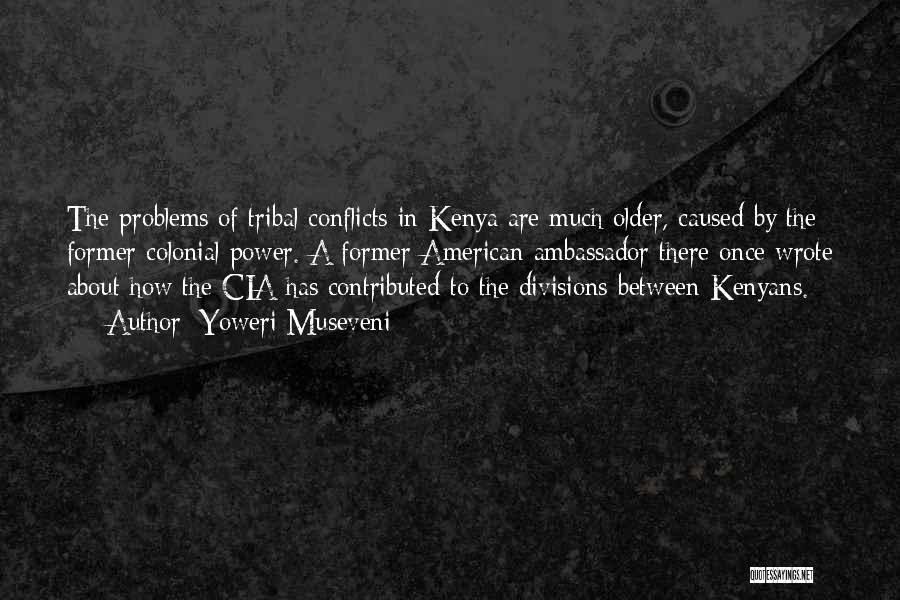
The problems of tribal conflicts in Kenya are much older, caused by the former colonial power. A former American ambassador there once wrote about how the CIA has contributed to the divisions between Kenyans. — Yoweri Museveni
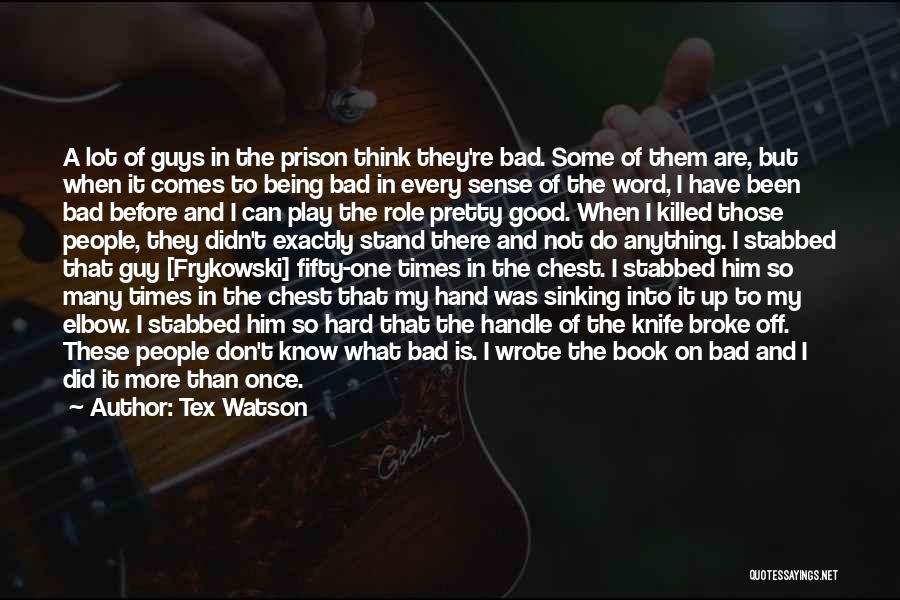
A lot of guys in the prison think they're bad. Some of them are, but when it comes to being bad in every sense of the word, I have been bad before and I can play the role pretty good. When I killed those people, they didn't exactly stand there and not do anything. I stabbed that guy [Frykowski] fifty-one times in the chest. I stabbed him so many times in the chest that my hand was sinking into it up to my elbow. I stabbed him so hard that the handle of the knife broke off. These people don't know what bad is. I wrote the book on bad and I did it more than once. — Tex Watson
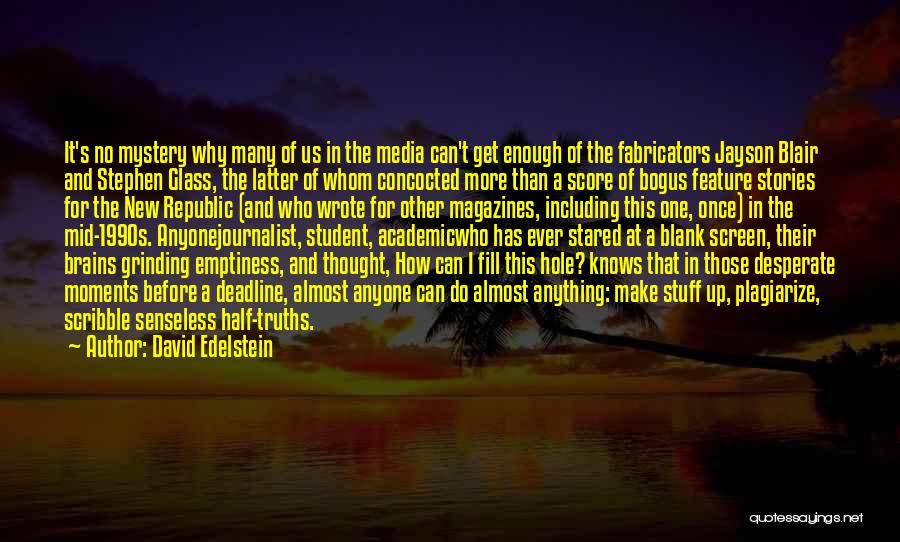
It's no mystery why many of us in the media can't get enough of the fabricators Jayson Blair and Stephen Glass, the latter of whom concocted more than a score of bogus feature stories for the New Republic (and who wrote for other magazines, including this one, once) in the mid-1990s. Anyone
journalist, student, academic
who has ever stared at a blank screen, their brains grinding emptiness, and thought, How can I fill this hole? knows that in those desperate moments before a deadline, almost anyone can do almost anything: make stuff up, plagiarize, scribble senseless half-truths. — David Edelstein
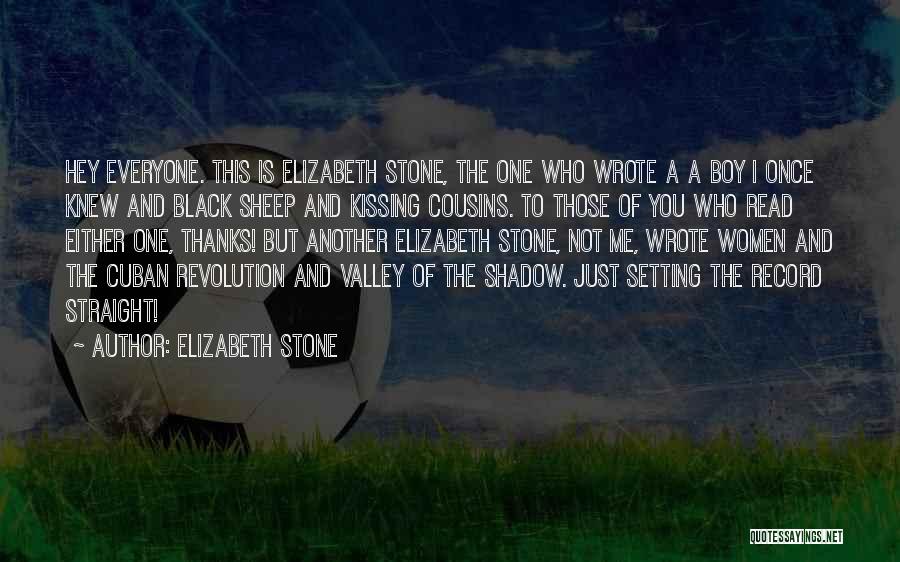
Hey everyone. This is Elizabeth Stone, the one who wrote a A BOY I ONCE KNEW and BLACK SHEEP AND KISSING COUSINS. To those of you who read either one, thanks! But another Elizabeth Stone, not me, wrote WOMEN AND THE CUBAN REVOLUTION and VALLEY OF THE SHADOW. Just setting the record straight! — Elizabeth Stone
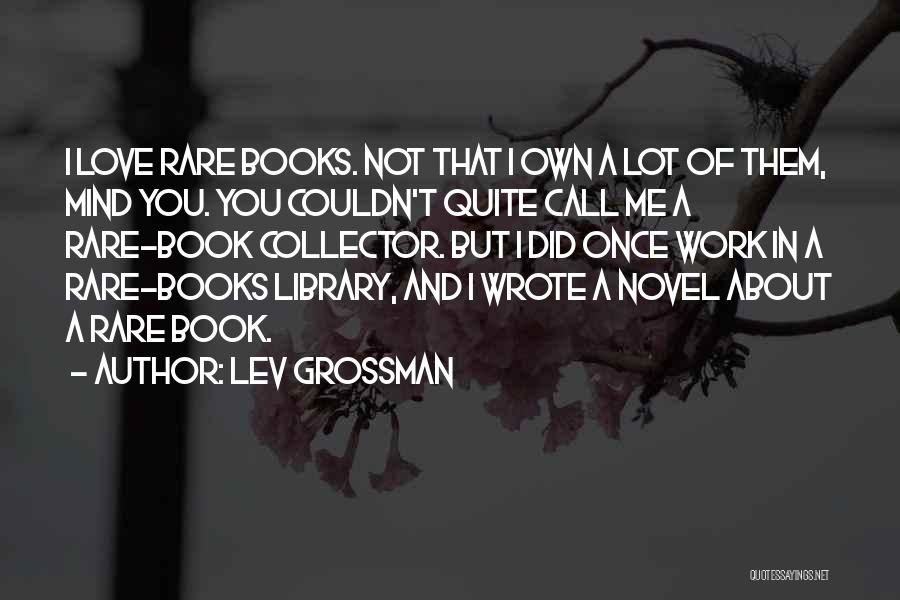
I love rare books. Not that I own a lot of them, mind you. You couldn't quite call me a rare-book collector. But I did once work in a rare-books library, and I wrote a novel about a rare book. — Lev Grossman
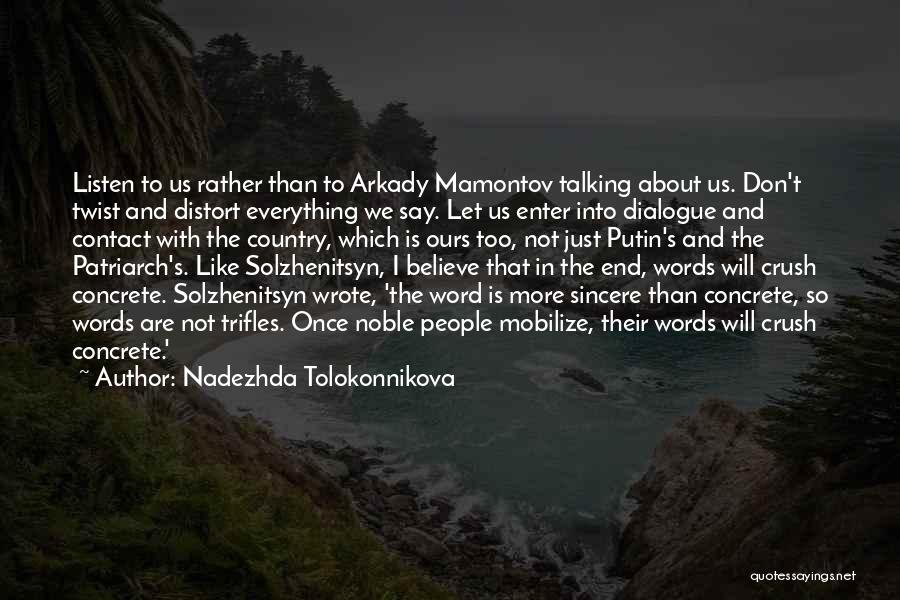
Listen to us rather than to Arkady Mamontov talking about us. Don't twist and distort everything we say. Let us enter into dialogue and contact with the country, which is ours too, not just Putin's and the Patriarch's. Like Solzhenitsyn, I believe that in the end, words will crush concrete. Solzhenitsyn wrote, 'the word is more sincere than concrete, so words are not trifles. Once noble people mobilize, their words will crush concrete.' — Nadezhda Tolokonnikova

It didn't occur to me that my books would be widely read at all, and that enabled me to write anything I wanted to. And even once I realized that they were being read, I still wrote as if I were writing in secret. That's how one has to write anyway
in secret. — Louise Erdrich

When the Nazis took Paris, the director of the Toledo Museum of Art wrote to David Finley, director of the not yet opened National Gallery of Art in Washington, D.C., to encourage the creation of a national plan, saying, I know [the possibility of invasion] is remote at the moment, but it was once remote in France. — Robert M. Edsel
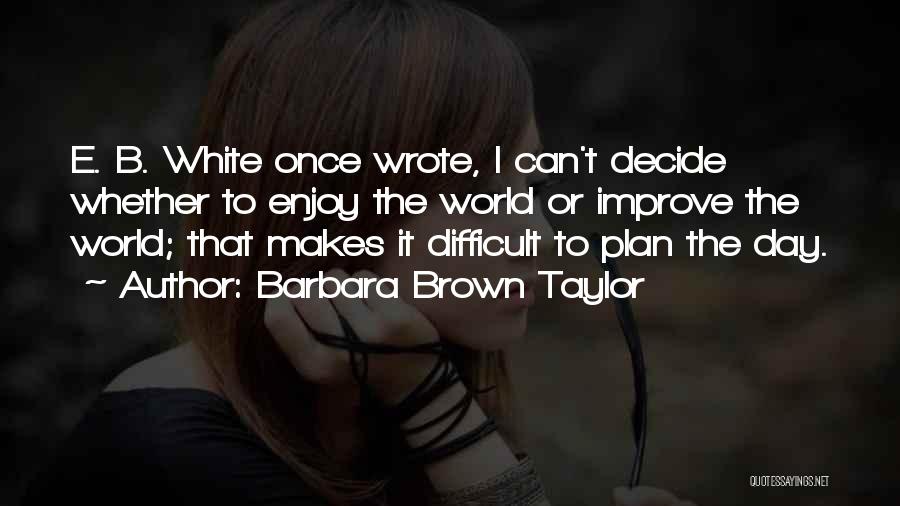
E. B. White once wrote, I can't decide whether to enjoy the world or improve the world; that makes it difficult to plan the day. — Barbara Brown Taylor
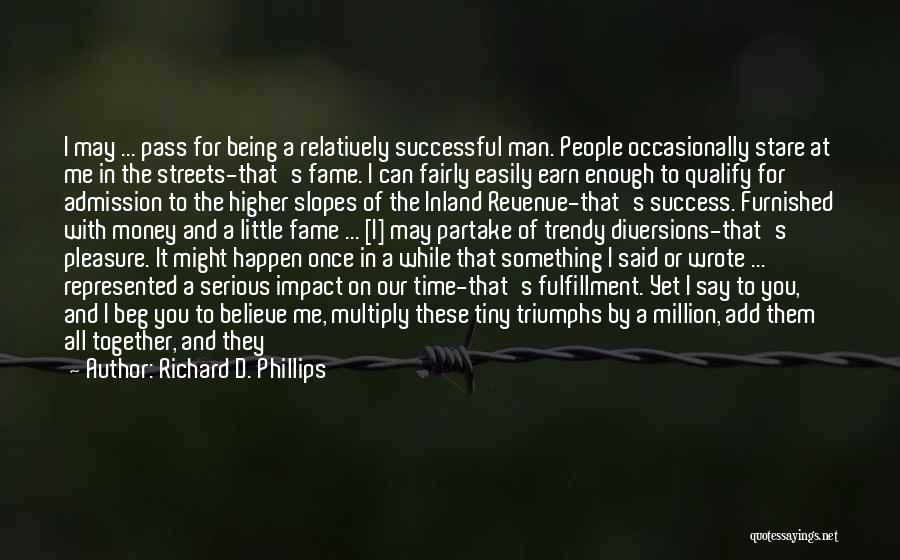
I may ... pass for being a relatively successful man. People occasionally stare at me in the streets-that's fame. I can fairly easily earn enough to qualify for admission to the higher slopes of the Inland Revenue-that's success. Furnished with money and a little fame ... [I] may partake of trendy diversions-that's pleasure. It might happen once in a while that something I said or wrote ... represented a serious impact on our time-that's fulfillment. Yet I say to you, and I beg you to believe me, multiply these tiny triumphs by a million, add them all together, and they are nothing-less than nothing, a positive impediment-measured against one draught of that living water Christ offers to the spiritually thirsty.8 — Richard D. Phillips
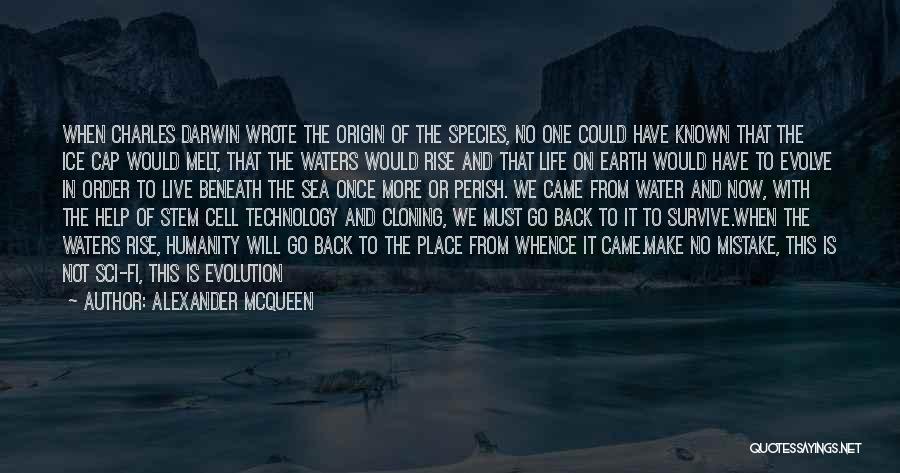
When Charles Darwin wrote The Origin Of The Species, no one could have known that the ice cap would melt, that the waters would rise and that life on earth would have to evolve in order to live beneath the sea once more or perish. We came from water and now, with the help of stem cell technology and cloning, we must go back to it to survive.When the waters rise, humanity will go back to the place from whence it came.Make no mistake, this is not sci-fi, this is evolution — Alexander McQueen
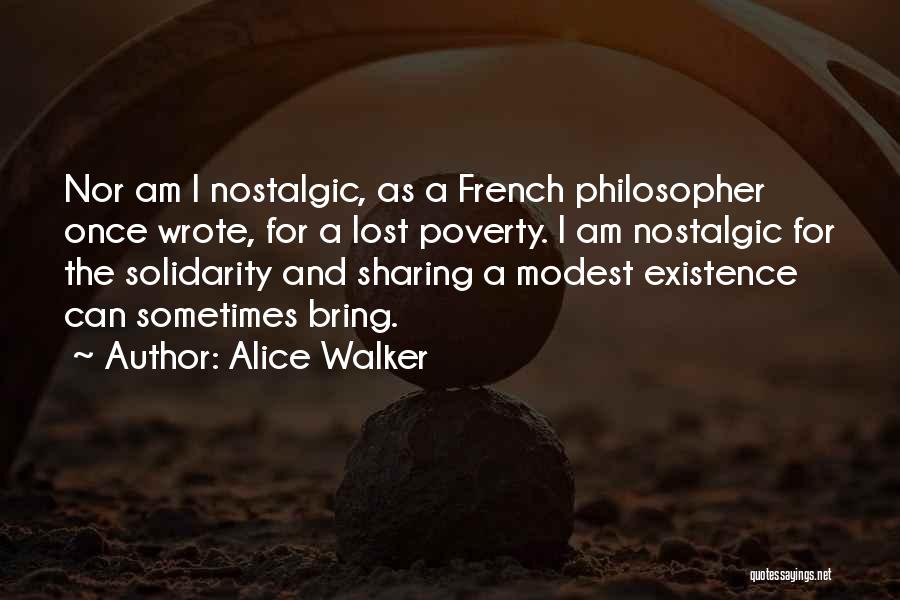
Nor am I nostalgic, as a French philosopher once wrote, for a lost poverty. I am nostalgic for the solidarity and sharing a modest existence can sometimes bring. — Alice Walker
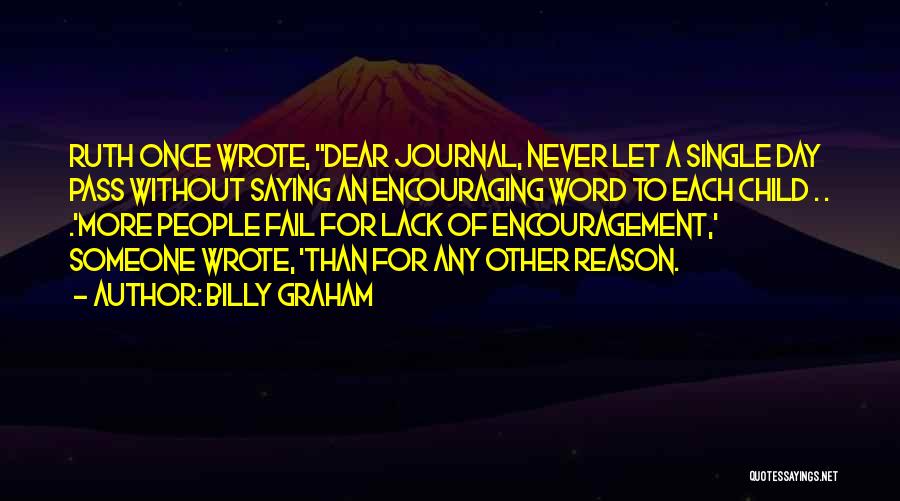
Ruth once wrote, "Dear Journal, Never let a single day pass without saying an encouraging word to each child . . .'More people fail for lack of encouragement,' someone wrote, 'than for any other reason. — Billy Graham
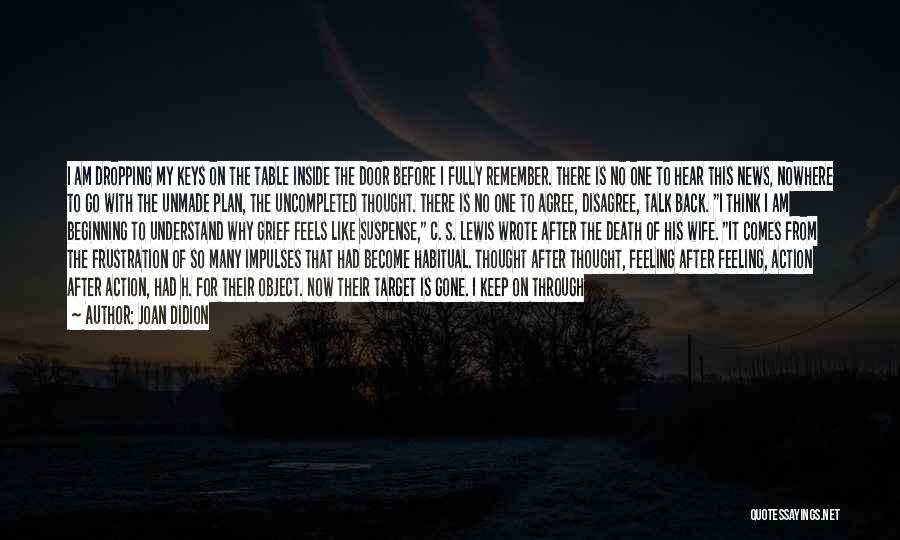
I am dropping my keys on the table inside the door before I fully remember. There is no one to hear this news, nowhere to go with the unmade plan, the uncompleted thought. There is no one to agree, disagree, talk back. "I think I am beginning to understand why grief feels like suspense," C. S. Lewis wrote after the death of his wife. "It comes from the frustration of so many impulses that had become habitual. Thought after thought, feeling after feeling, action after action, had H. for their object. Now their target is gone. I keep on through habit fitting an arrow to the string, then I remember and have to lay the bow down. So many roads lead thought to H. I set out on one of them. But now there's an impassable frontierpost across it. So many roads once; now so many cul de sacs." We — Joan Didion
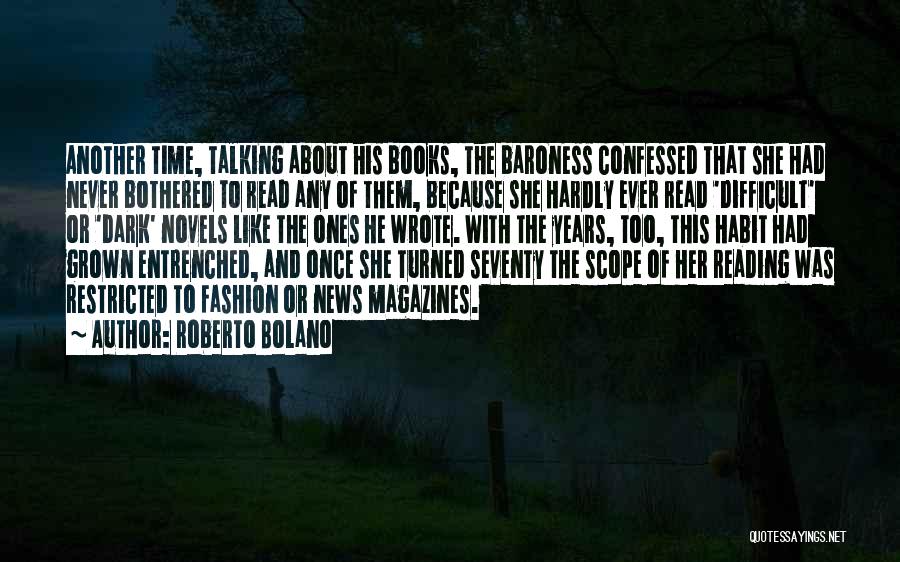
Another time, talking about his books, the baroness confessed that she had never bothered to read any of them, because she hardly ever read 'difficult' or 'dark' novels like the ones he wrote. With the years, too, this habit had grown entrenched, and once she turned seventy the scope of her reading was restricted to fashion or news magazines. — Roberto Bolano
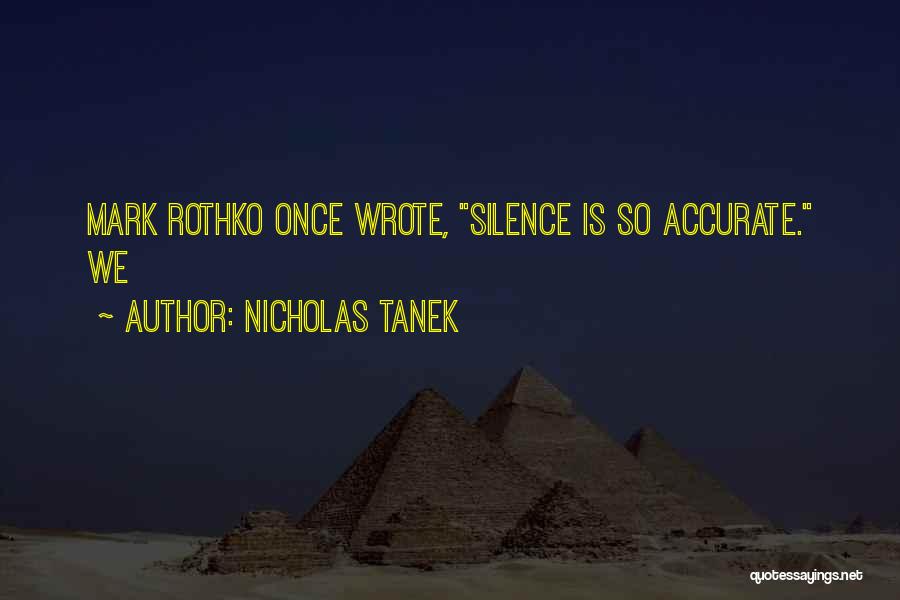
Mark Rothko once wrote, "Silence is so accurate." We — Nicholas Tanek
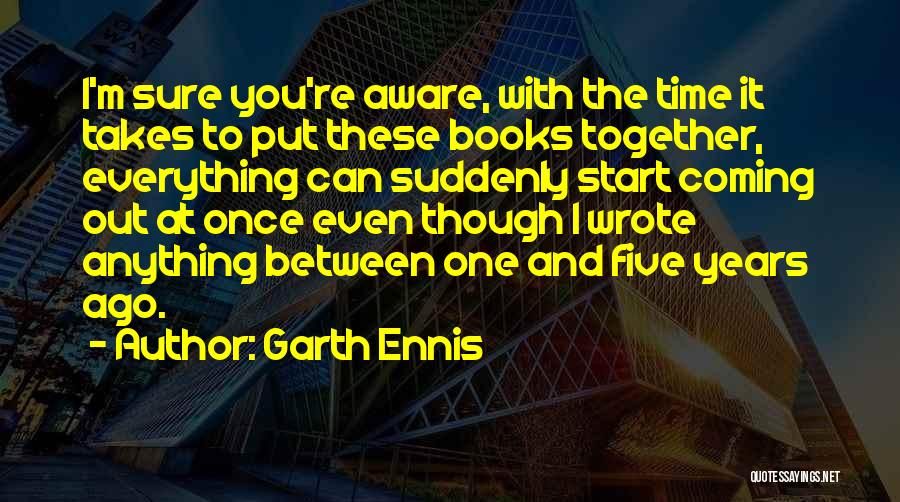
I'm sure you're aware, with the time it takes to put these books together, everything can suddenly start coming out at once even though I wrote anything between one and five years ago. — Garth Ennis
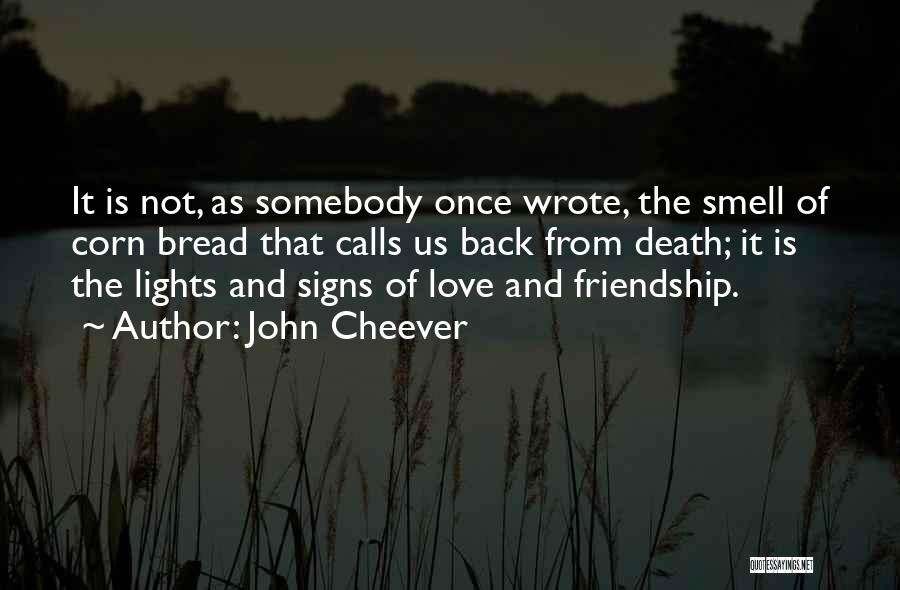
It is not, as somebody once wrote, the smell of corn bread that calls us back from death; it is the lights and signs of love and friendship. — John Cheever
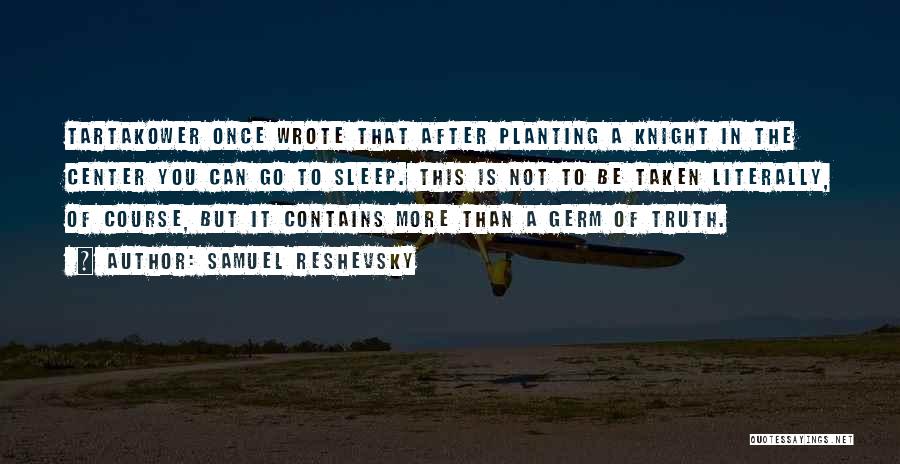
Tartakower once wrote that after planting a Knight in the center you can go to sleep. This is not to be taken literally, of course, but it contains more than a germ of truth. — Samuel Reshevsky
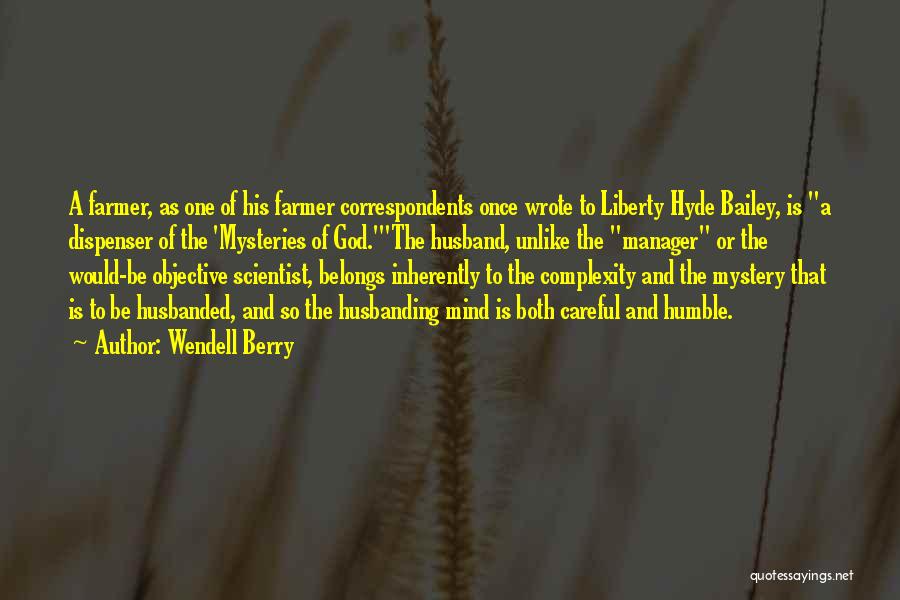
A farmer, as one of his farmer correspondents once wrote to Liberty Hyde Bailey, is "a dispenser of the 'Mysteries of God.'"
The husband, unlike the "manager" or the would-be objective scientist, belongs inherently to the complexity and the mystery that is to be husbanded, and so the husbanding mind is both careful and humble. — Wendell Berry
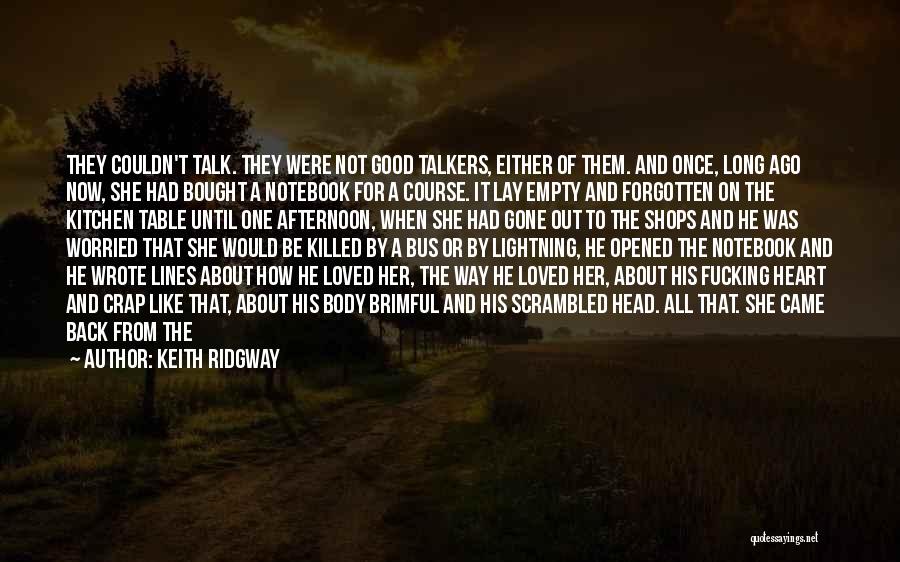
They couldn't talk. They were not good talkers, either of them. And once, long ago now, she had bought a notebook for a course. It lay empty and forgotten on the kitchen table until one afternoon, when she had gone out to the shops and he was worried that she would be killed by a bus or by lightning, he opened the notebook and he wrote lines about how he loved her, the way he loved her, about his fucking heart and crap like that, about his body brimful and his scrambled head. All that. She came back from the shops. He left the notebook where it was, and he didn't mention it. And it wasn't until about a week later that he noticed it again, and he flicked it open, and he saw his lines followed by lines from her. She'd written words that she had never said. He sat down. He read them over and over for a long time. Then he wrote a paragraph for her to find. — Keith Ridgway
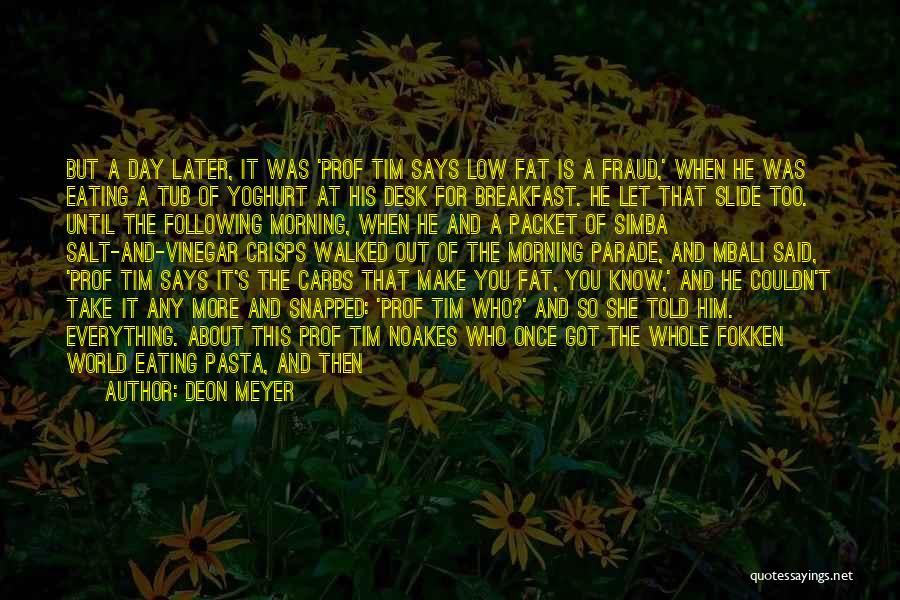
But a day later, it was 'Prof Tim says low fat is a fraud,' when he was eating a tub of yoghurt at his desk for breakfast. He let that slide too. Until the following morning, when he and a packet of Simba salt-and-vinegar crisps walked out of the morning parade, and Mbali said, 'Prof Tim says it's the carbs that make you fat, you know,' and he couldn't take it any more and snapped: 'Prof Tim who?' And so she told him. Everything. About this Prof Tim Noakes who once got the whole fokken world eating pasta, and then he did an about face and said, no, carbs are what's making everyone obese, and he wrote a book of recipes, and now he was Mbali's big hero, 'Because it takes a great man to admit that he was wrong', and she had already lost so much weight and she had so much more energy, and it wasn't all that hard, she didn't miss the carbs because now she ate cauliflower rice and cauliflower mash and flax seed bread. Flax seed bread, for fuck's sake. — Deon Meyer
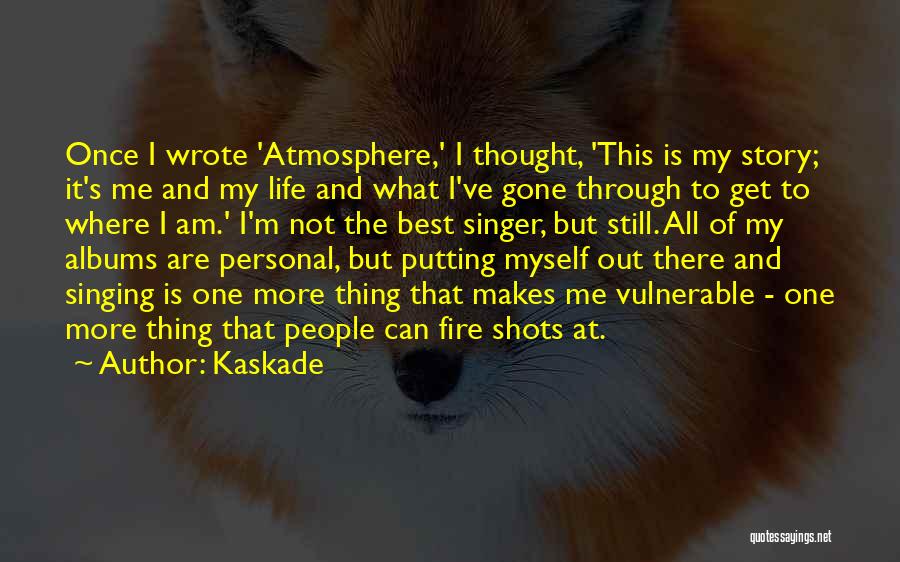
Once I wrote 'Atmosphere,' I thought, 'This is my story; it's me and my life and what I've gone through to get to where I am.' I'm not the best singer, but still. All of my albums are personal, but putting myself out there and singing is one more thing that makes me vulnerable - one more thing that people can fire shots at. — Kaskade
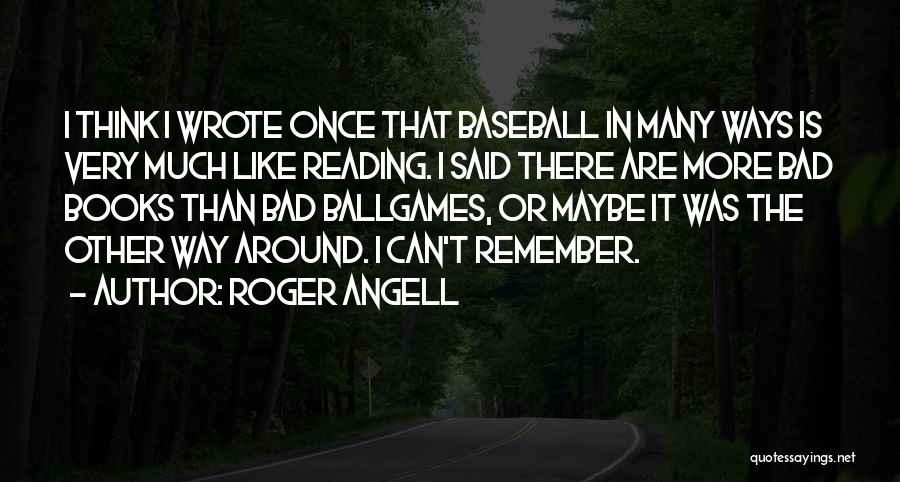
I think I wrote once that baseball in many ways is very much like reading. I said there are more bad books than bad ballgames, or maybe it was the other way around. I can't remember. — Roger Angell
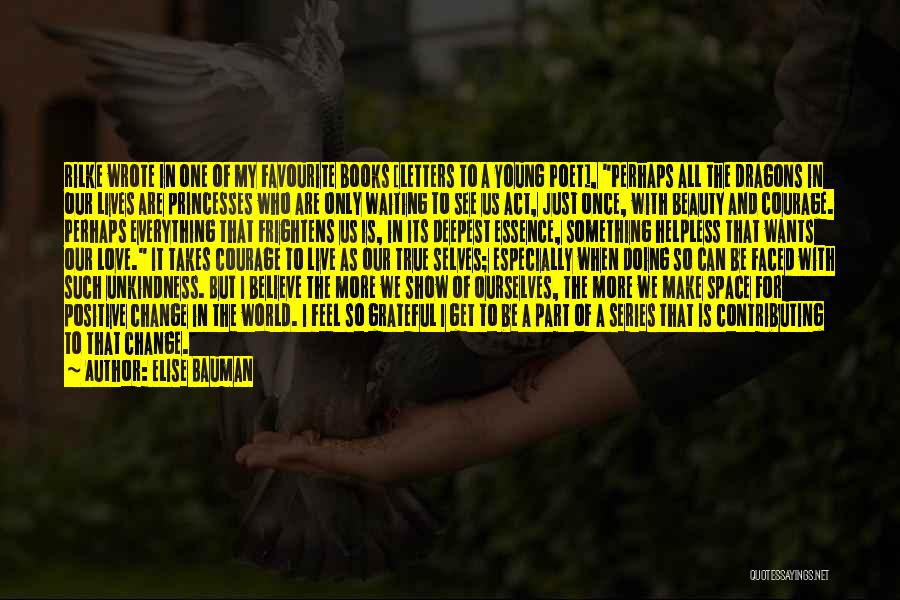
Rilke wrote in one of my favourite books [Letters to a Young Poet], "Perhaps all the dragons in our lives are princesses who are only waiting to see us act, just once, with beauty and courage. Perhaps everything that frightens us is, in its deepest essence, something helpless that wants our love." It takes courage to live as our true selves; especially when doing so can be faced with such unkindness. But I believe the more we show of ourselves, the more we make space for positive change in the world. I feel so grateful I get to be a part of a series that is contributing to that change. — Elise Bauman
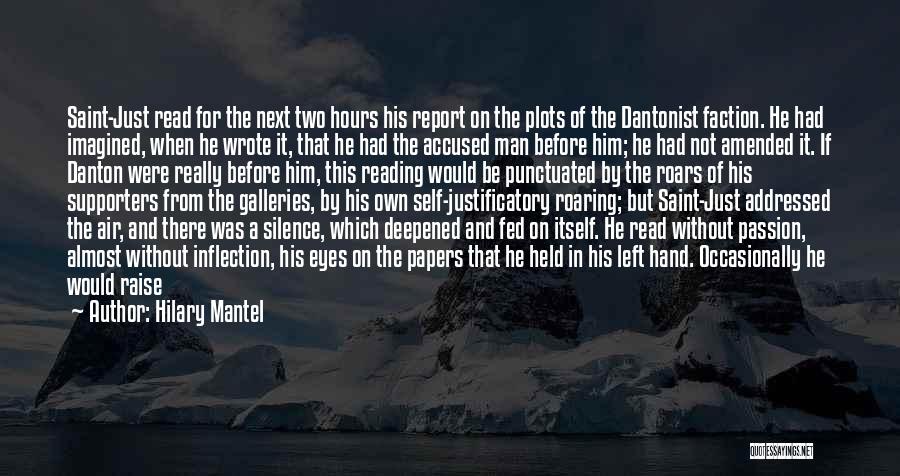
Saint-Just read for the next two hours his report on the plots of the Dantonist faction. He had imagined, when he wrote it, that he had the accused man before him; he had not amended it. If Danton were really before him, this reading would be punctuated by the roars of his supporters from the galleries, by his own self-justificatory roaring; but Saint-Just addressed the air, and there was a silence, which deepened and fed on itself. He read without passion, almost without inflection, his eyes on the papers that he held in his left hand. Occasionally he would raise his right arm, then let it fall limply by his side: this was his only gesture, a staid, mechanical one. Once, towards the end, he raised his young face to his audience and spoke directly to them: "After this," he promised, "there will be only patriots left. — Hilary Mantel
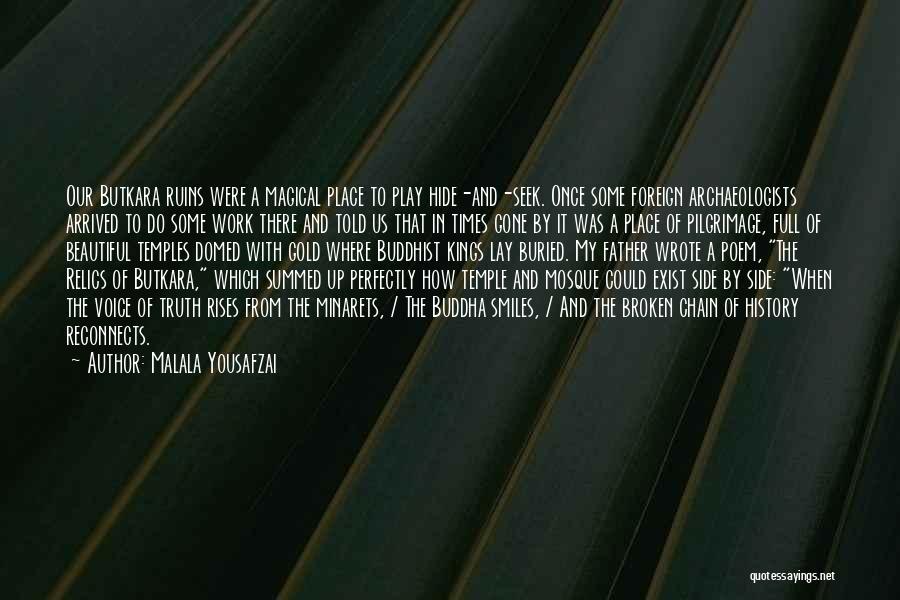
Our Butkara ruins were a magical place to play hide-and-seek. Once some foreign archaeologists arrived to do some work there and told us that in times gone by it was a place of pilgrimage, full of beautiful temples domed with gold where Buddhist kings lay buried. My father wrote a poem, "The Relics of Butkara," which summed up perfectly how temple and mosque could exist side by side: "When the voice of truth rises from the minarets, / The Buddha smiles, / And the broken chain of history reconnects. — Malala Yousafzai
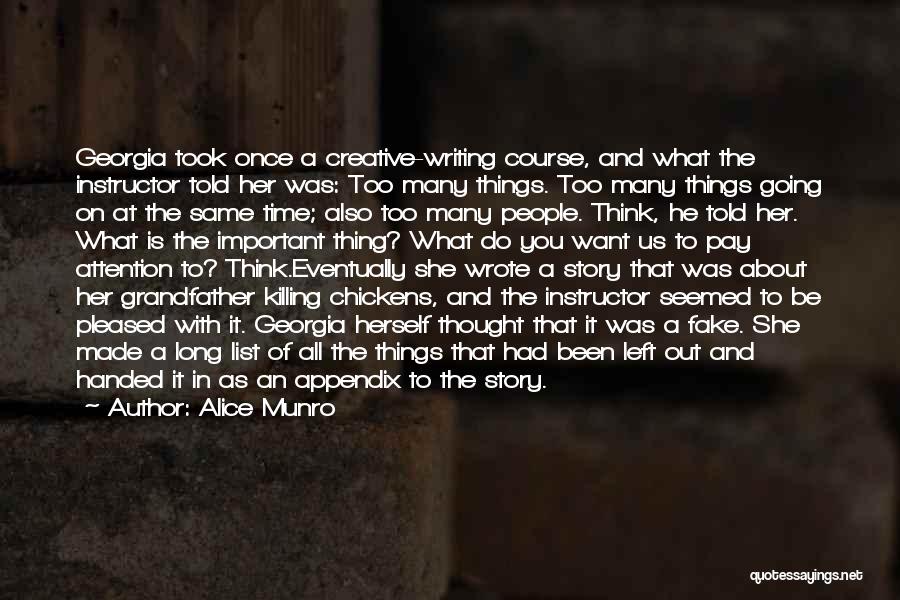
Georgia took once a creative-writing course, and what the instructor told her was: Too many things. Too many things going on at the same time; also too many people. Think, he told her. What is the important thing? What do you want us to pay attention to? Think.
Eventually she wrote a story that was about her grandfather killing chickens, and the instructor seemed to be pleased with it. Georgia herself thought that it was a fake. She made a long list of all the things that had been left out and handed it in as an appendix to the story. The instructor said that she expected too much, of herself and of the process, and that she was wearing him out.
The course was not a total loss, because Georgia and the instructor ended up living together. — Alice Munro
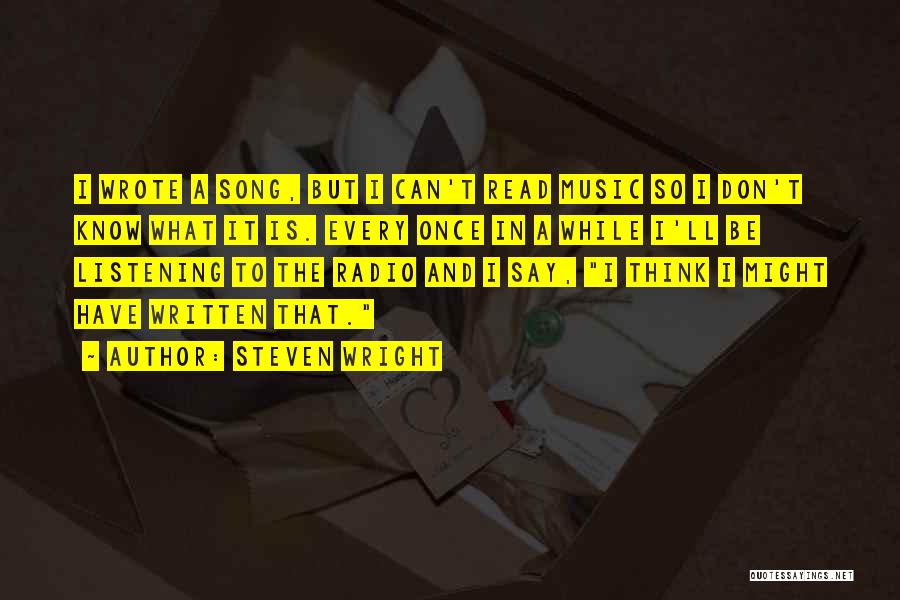
I wrote a song, but I can't read music so I don't know what it is. Every once in a while I'll be listening to the radio and I say, "I think I might have written that." — Steven Wright
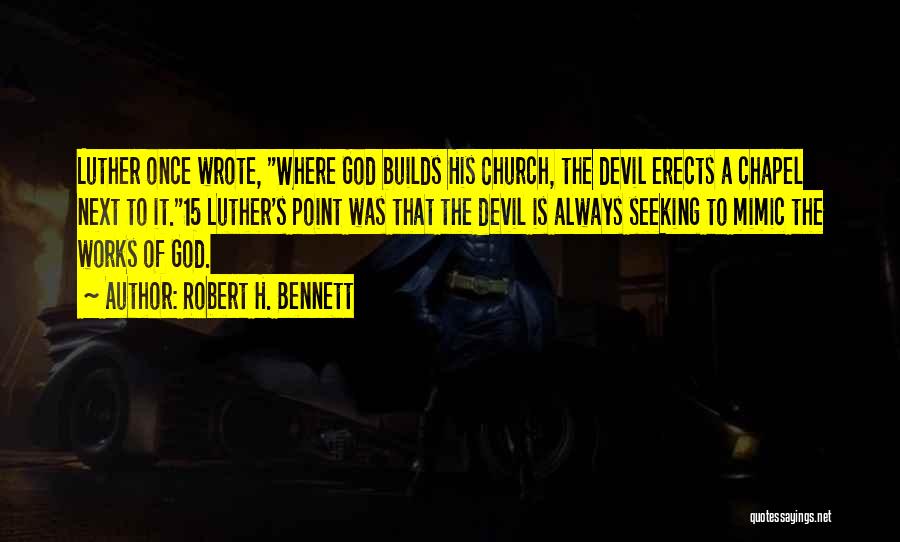
Luther once wrote, "Where God builds His Church, the devil erects a chapel next to it."15 Luther's point was that the devil is always seeking to mimic the works of God. — Robert H. Bennett

The upheavals [of artificial intelligence] can escalate quickly and become scarier and even cataclysmic," the New York Times tech columnist once wrote. "Imagine how a medical robot, originally programmed to rid cancer, could conclude that the best way to obliterate cancer is to exterminate humans who are genetically prone to the disease. — Jaron Lanier

Pliny the Elder wrote once: "If anyone will consider the
abundance of Rome's public supply of water, for baths, cisterns, ditches, houses, gardens,
villas; and take into account the distance over which it travels, the arches reared, the mountains
pierced, the valleys spanned - he will admit that there never was anything more marvelous
in the whole world. — Elizabeth Gilbert
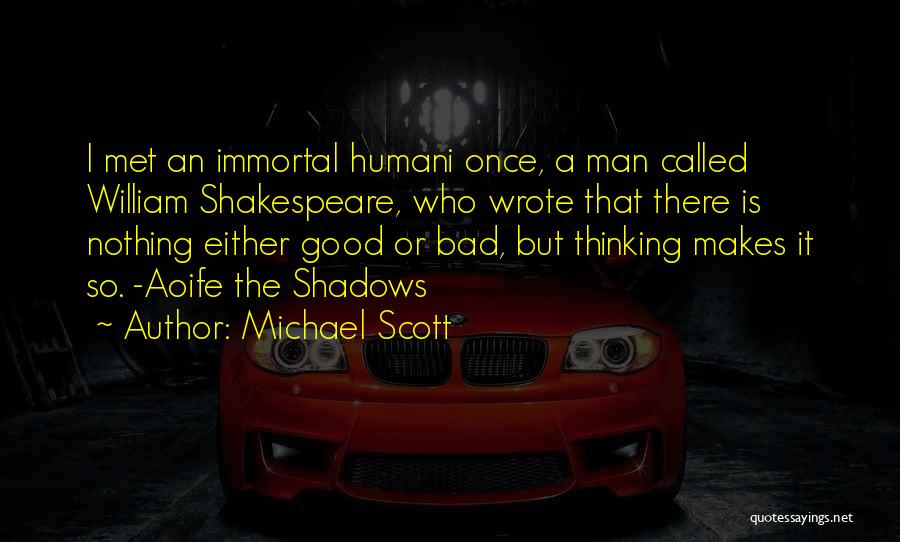
I met an immortal humani once, a man called William Shakespeare, who wrote that there is nothing either good or bad, but thinking makes it so. -Aoife the Shadows — Michael Scott
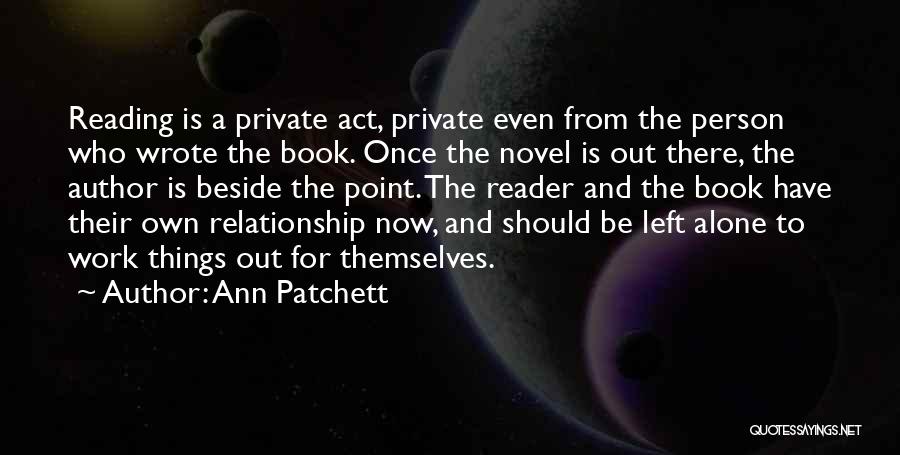
Reading is a private act, private even from the person who wrote the book. Once the novel is out there, the author is beside the point. The reader and the book have their own relationship now, and should be left alone to work things out for themselves. — Ann Patchett
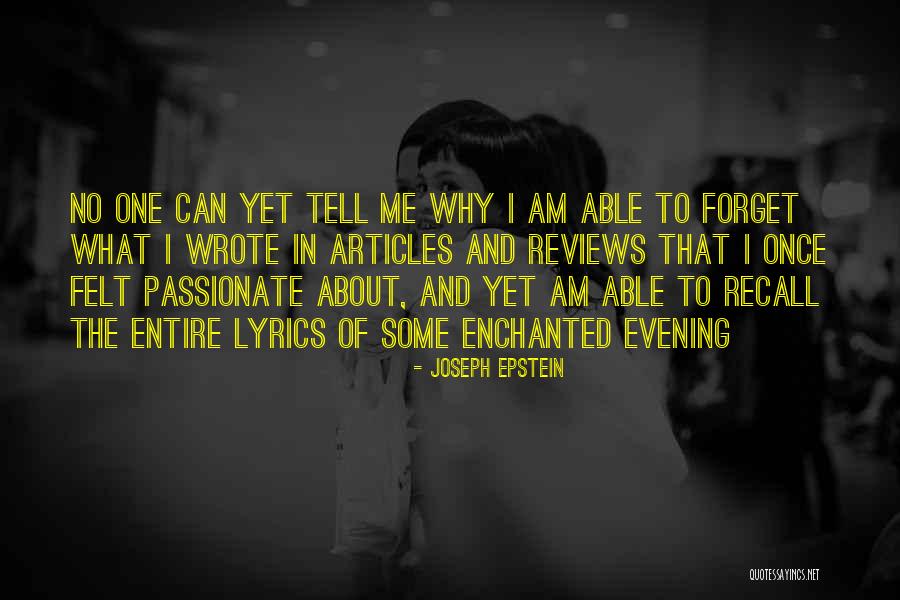
No one can yet tell me why I am able to forget what I wrote in articles and reviews that I once felt passionate about, and yet am able to recall the entire lyrics of Some Enchanted Evening — Joseph Epstein
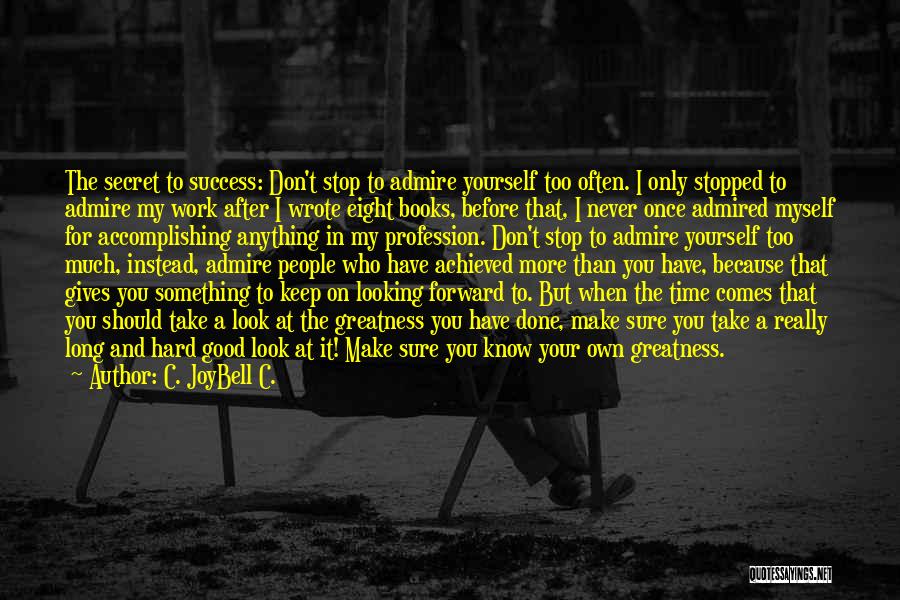
The secret to success: Don't stop to admire yourself too often. I only stopped to admire my work after I wrote eight books, before that, I never once admired myself for accomplishing anything in my profession. Don't stop to admire yourself too much, instead, admire people who have achieved more than you have, because that gives you something to keep on looking forward to. But when the time comes that you should take a look at the greatness you have done, make sure you take a really long and hard good look at it! Make sure you know your own greatness. — C. JoyBell C.
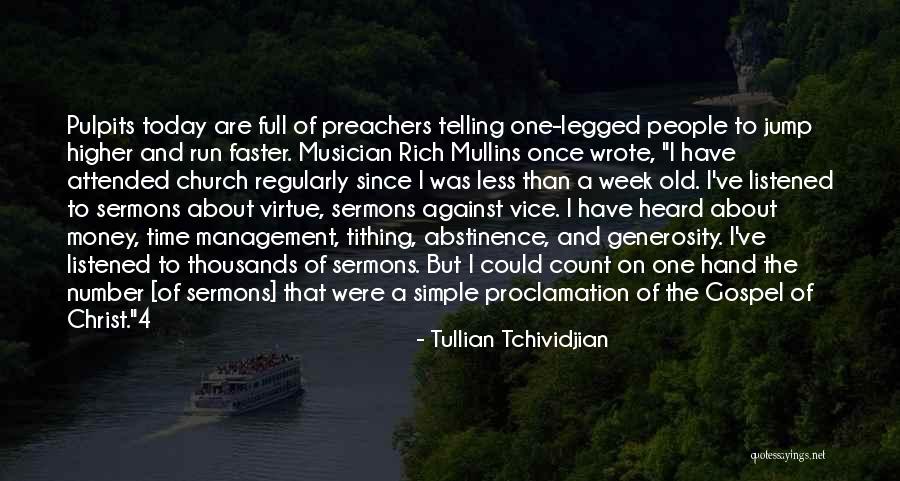
Pulpits today are full of preachers telling one-legged people to jump higher and run faster. Musician Rich Mullins once wrote, "I have attended church regularly since I was less than a week old. I've listened to sermons about virtue, sermons against vice. I have heard about money, time management, tithing, abstinence, and generosity. I've listened to thousands of sermons. But I could count on one hand the number [of sermons] that were a simple proclamation of the Gospel of Christ."4 — Tullian Tchividjian
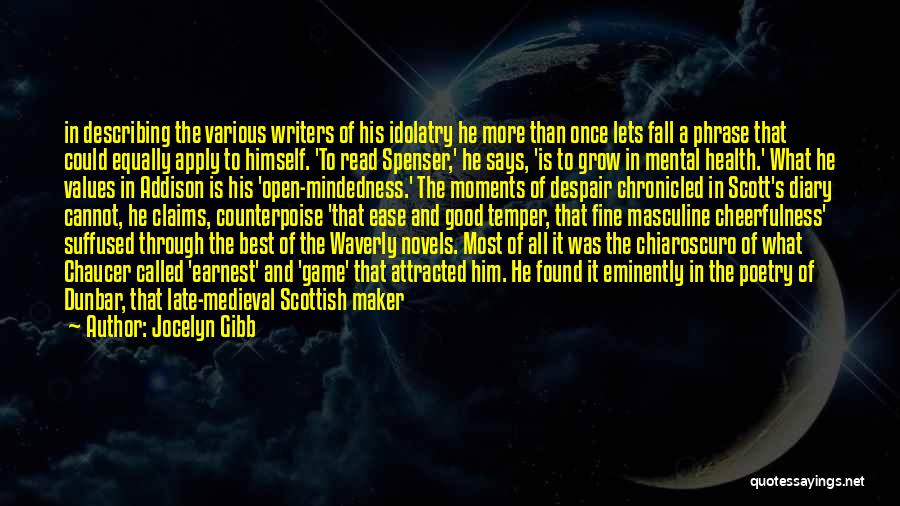
in describing the various writers of his idolatry he more than once lets fall a phrase that could equally apply to himself. 'To read Spenser,' he says, 'is to grow in mental health.' What he values in Addison is his 'open-mindedness.' The moments of despair chronicled in Scott's diary cannot, he claims, counterpoise 'that ease and good temper, that fine masculine cheerfulness' suffused through the best of the Waverly novels. Most of all it was the chiaroscuro of what Chaucer called 'earnest' and 'game' that attracted him. He found it eminently in the poetry of Dunbar, that late-medieval Scottish maker who wrote the greatest religious poetry and the earthiest satire in the language — Jocelyn Gibb
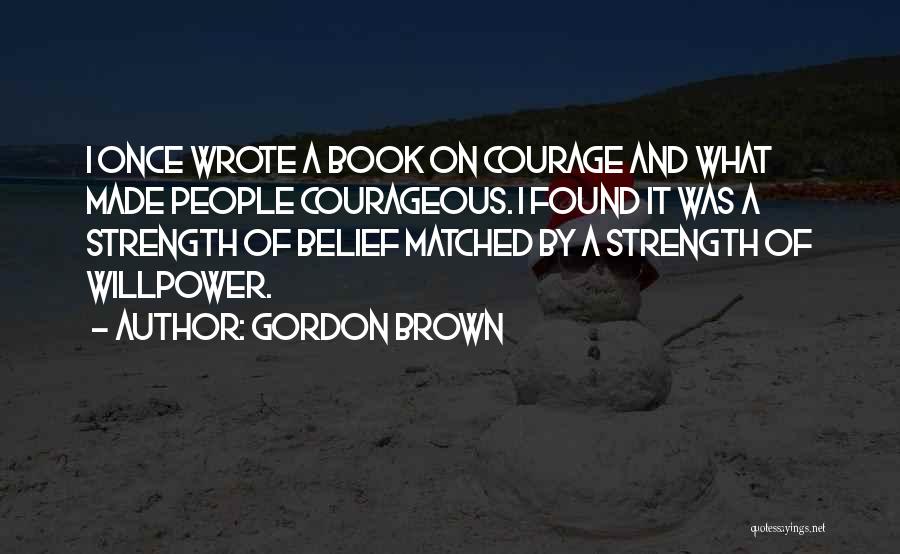
I once wrote a book on courage and what made people courageous. I found it was a strength of belief matched by a strength of willpower. — Gordon Brown
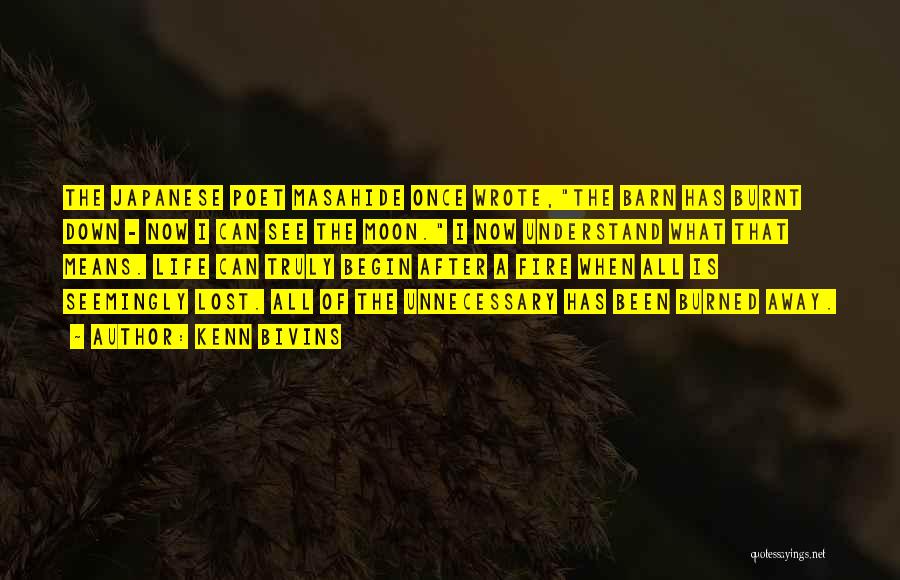
The Japanese poet Masahide once wrote,"The barn has burnt down - now I can see the moon." I now understand what that means. Life can truly begin after a fire when all is seemingly lost. All of the unnecessary has been burned away. — Kenn Bivins
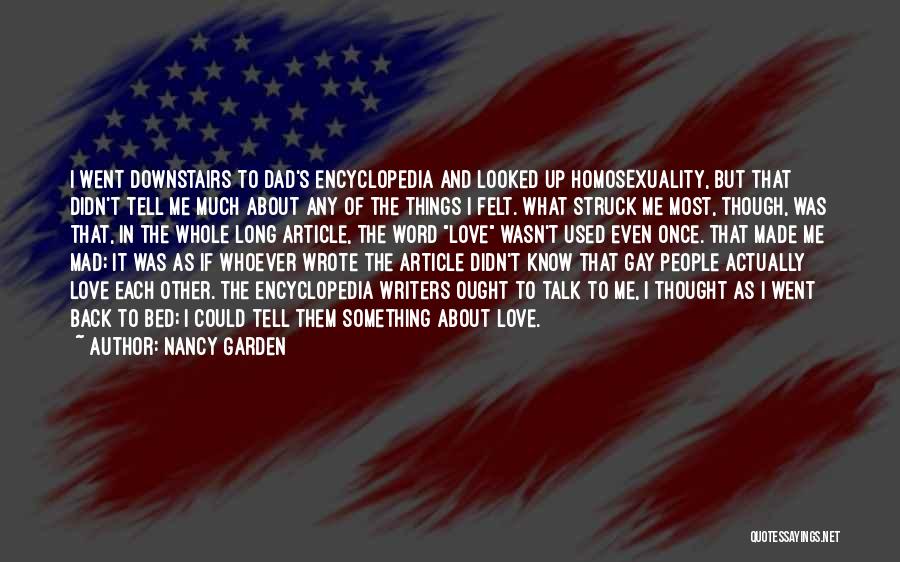
I went downstairs to Dad's encyclopedia and looked up HOMOSEXUALITY, but that didn't tell me much about any of the things I felt. What struck me most, though, was that, in the whole long article, the word "love" wasn't used even once. That made me mad; it was as if whoever wrote the article didn't know that gay people actually love each other. The encyclopedia writers ought to talk to me, I thought as I went back to bed; I could tell them something about love. — Nancy Garden
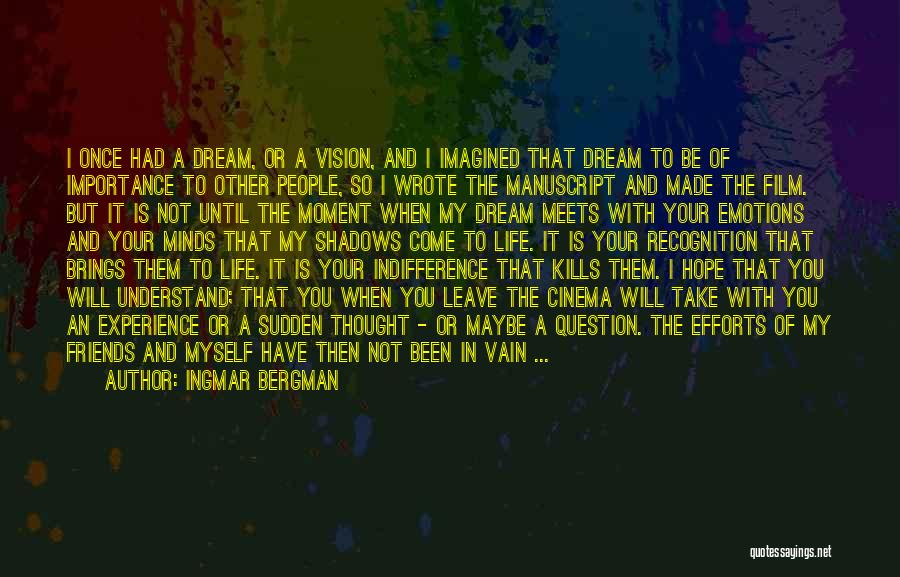
I once had a dream, or a vision, and I imagined that dream to be of importance to other people, so I wrote the manuscript and made the film. But it is not until the moment when my dream meets with your emotions and your minds that my shadows come to life. It is your recognition that brings them to life. It is your indifference that kills them. I hope that you will understand; that you when you leave the cinema will take with you an experience or a sudden thought - or maybe a question. The efforts of my friends and myself have then not been in vain ... — Ingmar Bergman
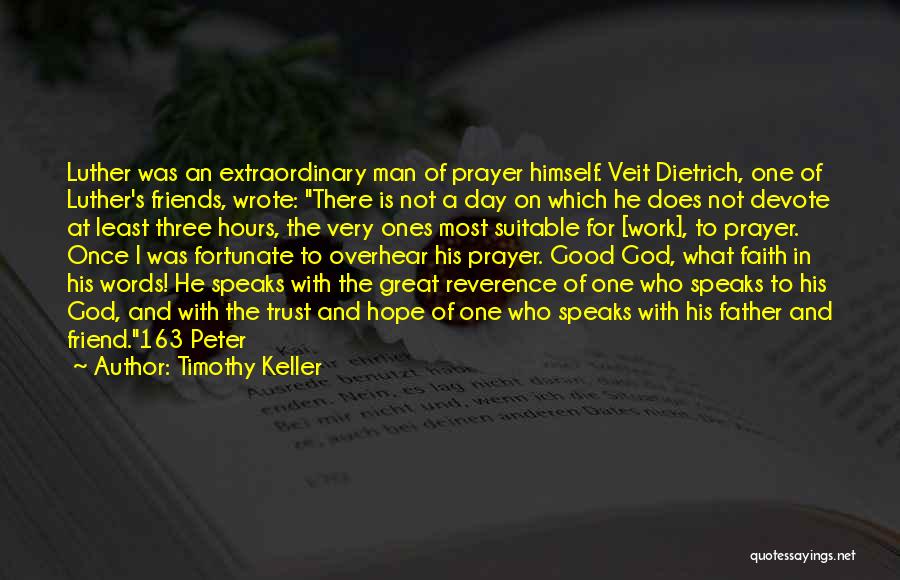
Luther was an extraordinary man of prayer himself. Veit Dietrich, one of Luther's friends, wrote: "There is not a day on which he does not devote at least three hours, the very ones most suitable for [work], to prayer. Once I was fortunate to overhear his prayer. Good God, what faith in his words! He speaks with the great reverence of one who speaks to his God, and with the trust and hope of one who speaks with his father and friend."163 Peter — Timothy Keller
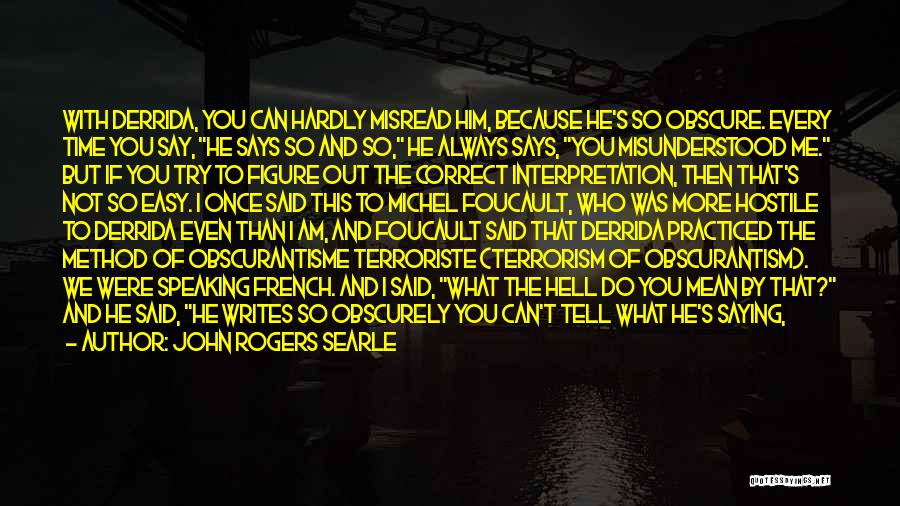
With Derrida, you can hardly misread him, because he's so obscure. Every time you say, "He says so and so," he always says, "You misunderstood me." But if you try to figure out the correct interpretation, then that's not so easy. I once said this to Michel Foucault, who was more hostile to Derrida even than I am, and Foucault said that Derrida practiced the method of obscurantisme terroriste (terrorism of obscurantism). We were speaking French. And I said, "What the hell do you mean by that?" And he said, "He writes so obscurely you can't tell what he's saying, that's the obscurantism part, and then when you criticize him, he can always say, 'You didn't understand me; you're an idiot.' That's the terrorism part." And I like that. So I wrote an article about Derrida. I asked Michel if it was OK if I quoted that passage, and he said yes. — John Rogers Searle
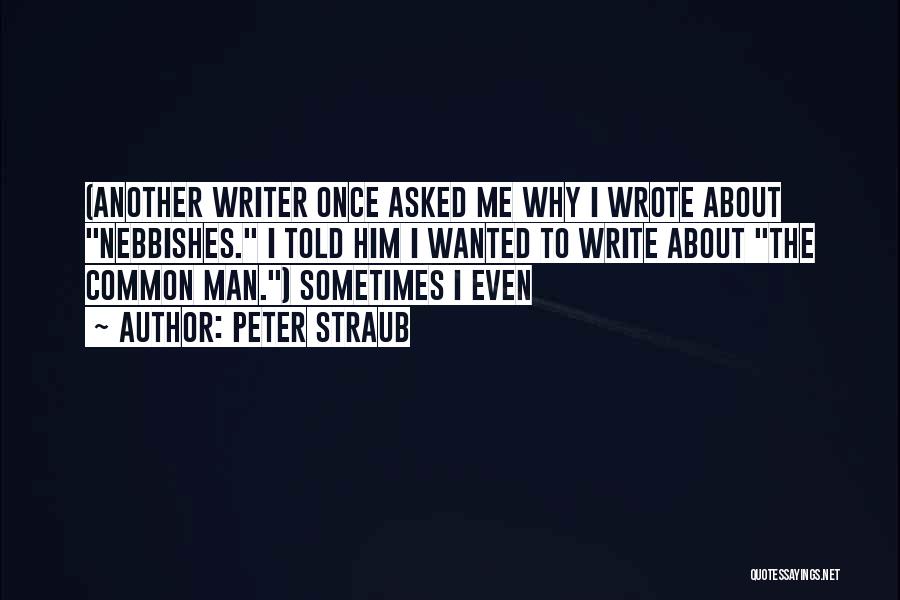
(Another writer once asked me why I wrote about "nebbishes." I told him I wanted to write about "the common man.") Sometimes I even — Peter Straub
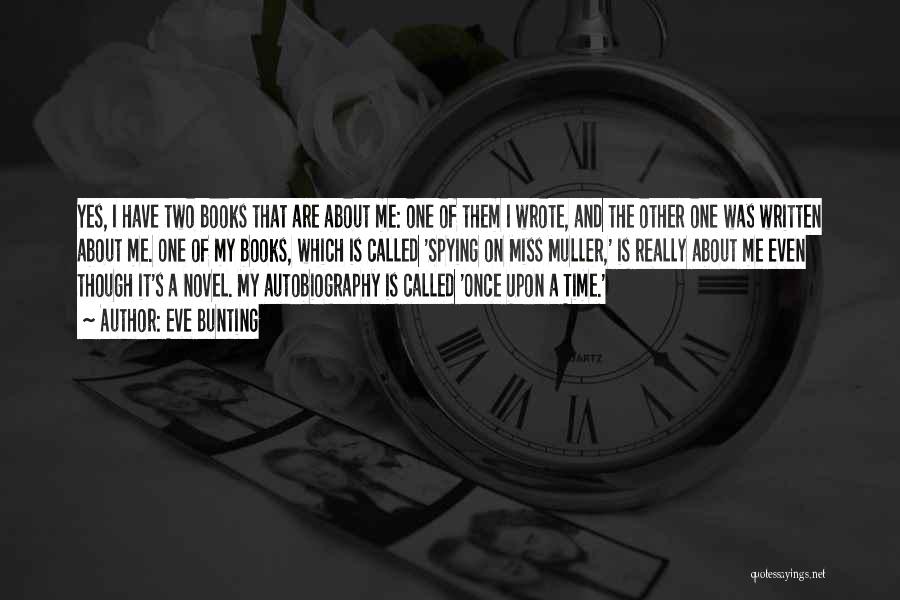
Yes, I have two books that are about me: one of them I wrote, and the other one was written about me. One of my books, which is called 'Spying on Miss Muller,' is really about me even though it's a novel. My autobiography is called 'Once Upon a Time.' — Eve Bunting
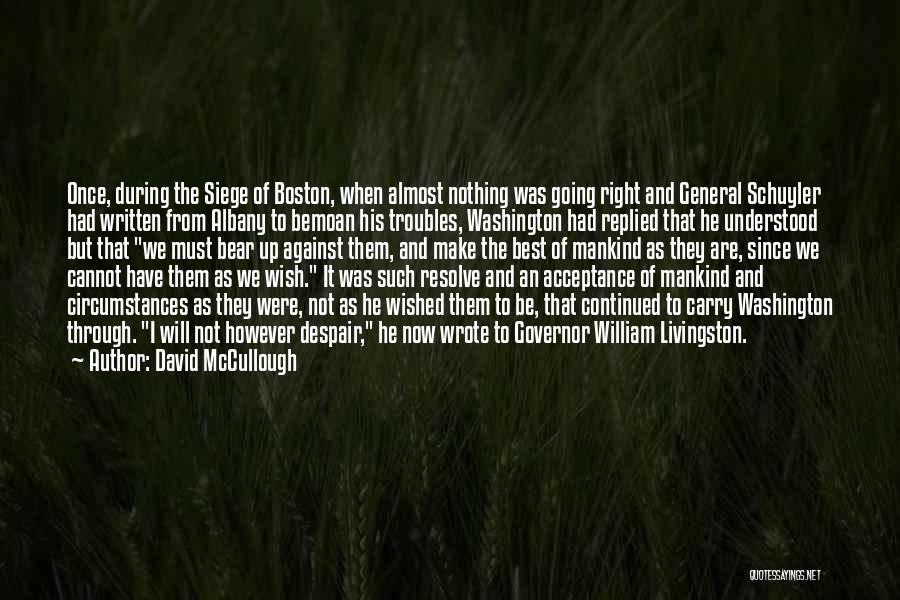
Once, during the Siege of Boston, when almost nothing was going right and General Schuyler had written from Albany to bemoan his troubles, Washington had replied that he understood but that "we must bear up against them, and make the best of mankind as they are, since we cannot have them as we wish." It was such resolve and an acceptance of mankind and circumstances as they were, not as he wished them to be, that continued to carry Washington through. "I will not however despair," he now wrote to Governor William Livingston. — David McCullough
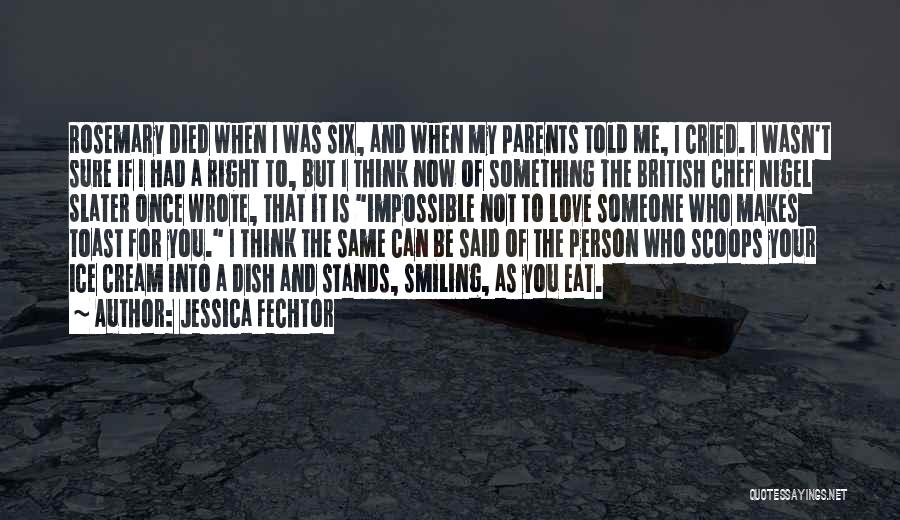
Rosemary died when I was six, and when my parents told me, I cried. I wasn't sure if I had a right to, but I think now of something the British chef Nigel Slater once wrote, that it is "impossible not to love someone who makes toast for you." I think the same can be said of the person who scoops your ice cream into a dish and stands, smiling, as you eat. — Jessica Fechtor
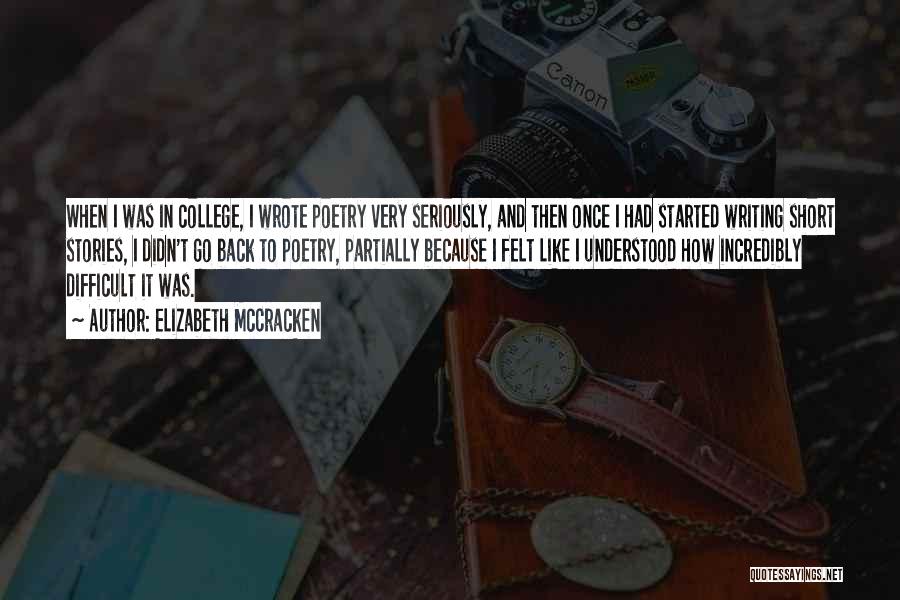
When I was in college, I wrote poetry very seriously, and then once I had started writing short stories, I didn't go back to poetry, partially because I felt like I understood how incredibly difficult it was. — Elizabeth McCracken
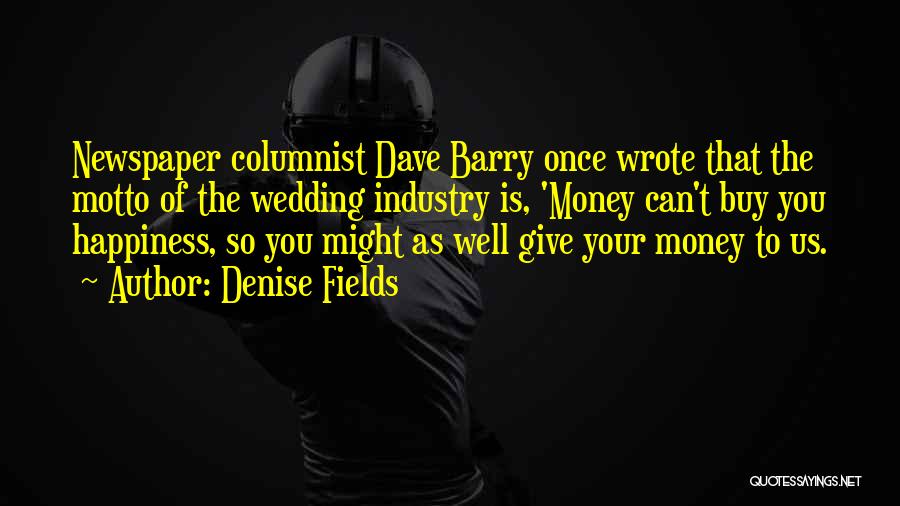
Newspaper columnist Dave Barry once wrote that the motto of the wedding industry is, 'Money can't buy you happiness, so you might as well give your money to us. — Denise Fields
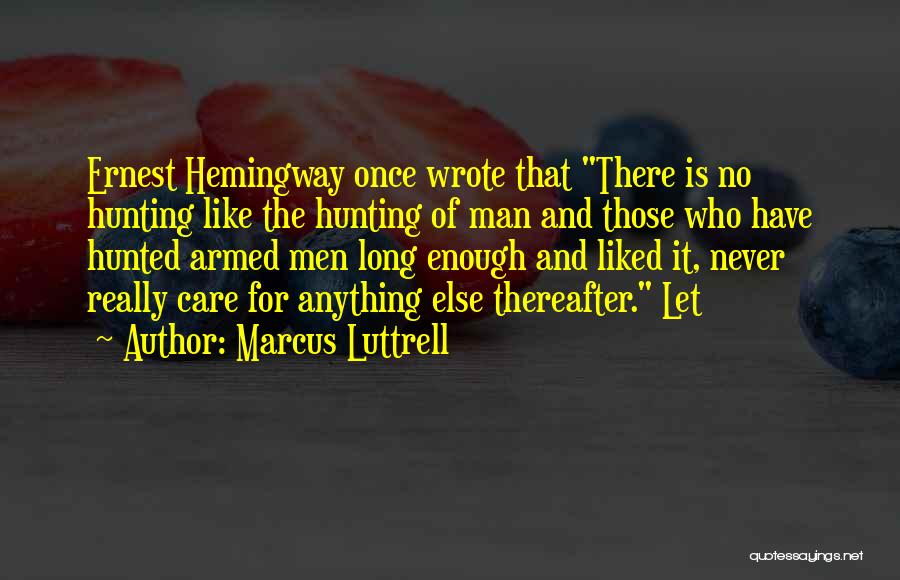
Ernest Hemingway once wrote that "There is no hunting like the hunting of man and those who have hunted armed men long enough and liked it, never really care for anything else thereafter." Let — Marcus Luttrell
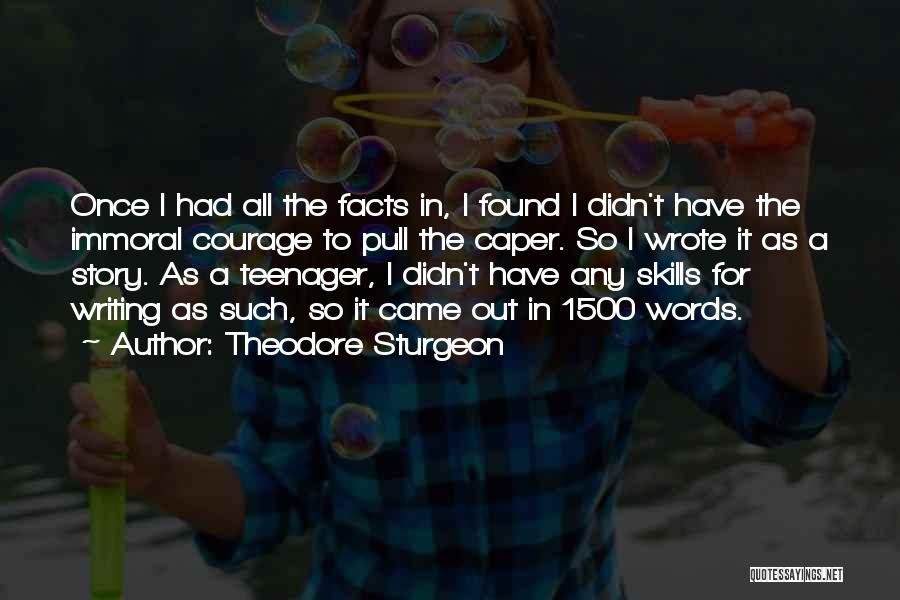
Once I had all the facts in, I found I didn't have the immoral courage to pull the caper. So I wrote it as a story. As a teenager, I didn't have any skills for writing as such, so it came out in 1500 words. — Theodore Sturgeon
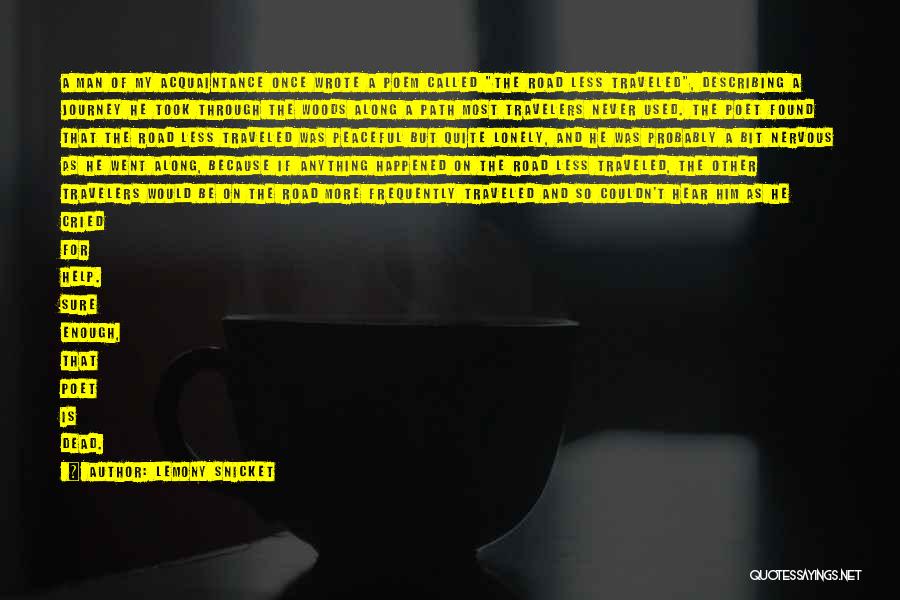
A man of my acquaintance once wrote a poem called "The Road Less Traveled", describing a journey he took through the woods along a path most travelers never used. The poet found that the road less traveled was peaceful but quite lonely, and he was probably a bit nervous as he went along, because if anything happened on the road less traveled, the other travelers would be on the road more frequently traveled and so couldn't hear him as he cried for help. Sure enough, that poet is dead. — Lemony Snicket
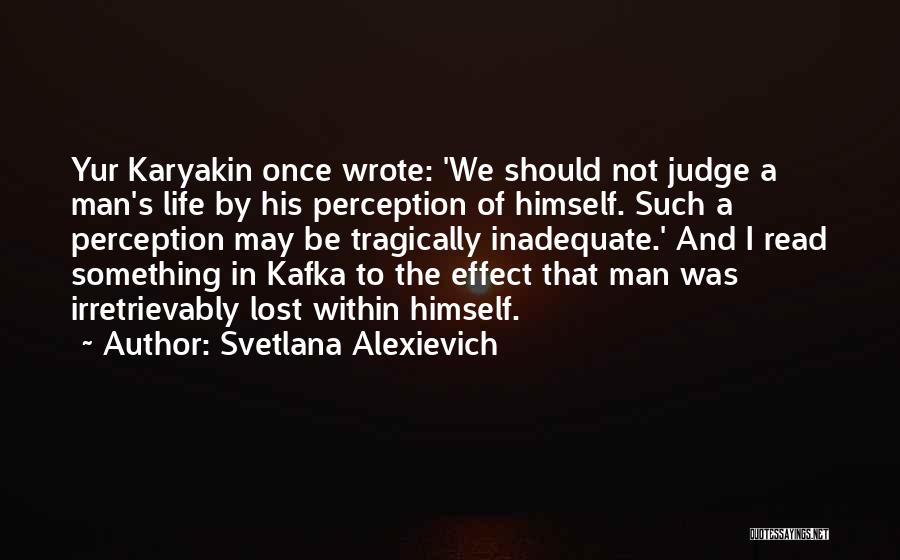
Yur Karyakin once wrote: 'We should not judge a man's life by his perception of himself. Such a perception may be tragically inadequate.' And I read something in Kafka to the effect that man was irretrievably lost within himself. — Svetlana Alexievich

When I was in school, I was very much into just sports, mostly basketball, and didn't really see myself as much of a student. But once I got into college, I figured I wasn't going to be play beyond college. I started to think what was I going to do, since I wouldn't be able to make a living with basketball. There were a couple of things I liked to do. I wrote poetry, spoken word mostly. — Matt De La Pena
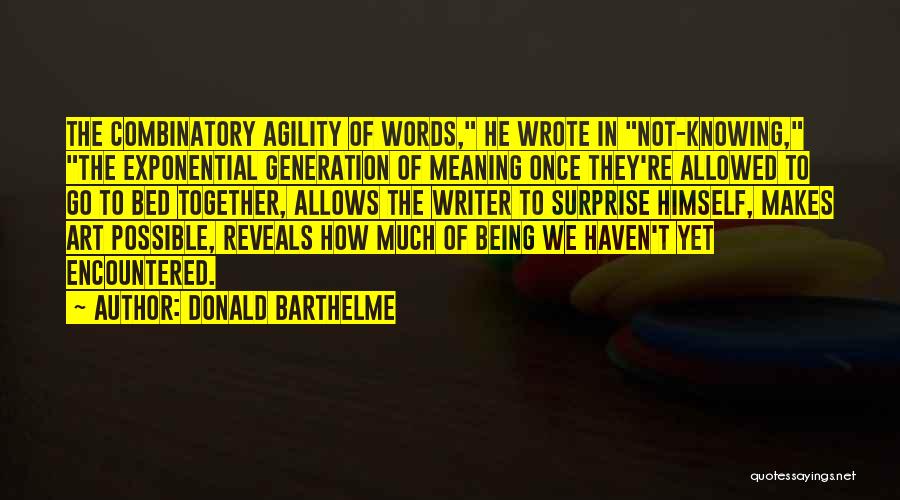
The combinatory agility of words," he wrote in "Not-Knowing," "the exponential generation of meaning once they're allowed to go to bed together, allows the writer to surprise himself, makes art possible, reveals how much of Being we haven't yet encountered. — Donald Barthelme

An associate of mine named William Congreve once wrote a very sad play that begins with the line 'Music has charms to sooth a savage beast,' a sentence which here means that if you are nervous or upset, you might listen to some music to calm you down or cheer you up. For instance, as I crouch here behind the alter of the Cathedral of the Alleged Virgin, a friend of mine is playing a sonata on the pipe organ, to calm me down and so that the sounds of my typewriter will not be heard by the worshipers sitting in the pews. The mournful melody of the sonata reminds me of a tune my father used to sing when he did the dishes, and as I listen to it I can temporarily forget six or seven of my troubles. — Lemony Snicket
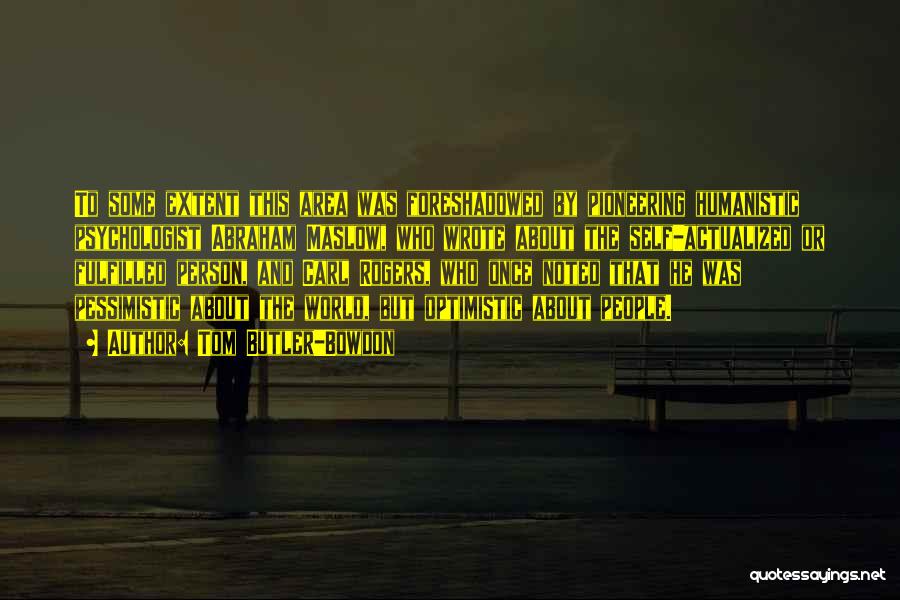
To some extent this area was foreshadowed by pioneering humanistic psychologist Abraham Maslow, who wrote about the self-actualized or fulfilled person, and Carl Rogers, who once noted that he was pessimistic about the world, but optimistic about people. — Tom Butler-Bowdon
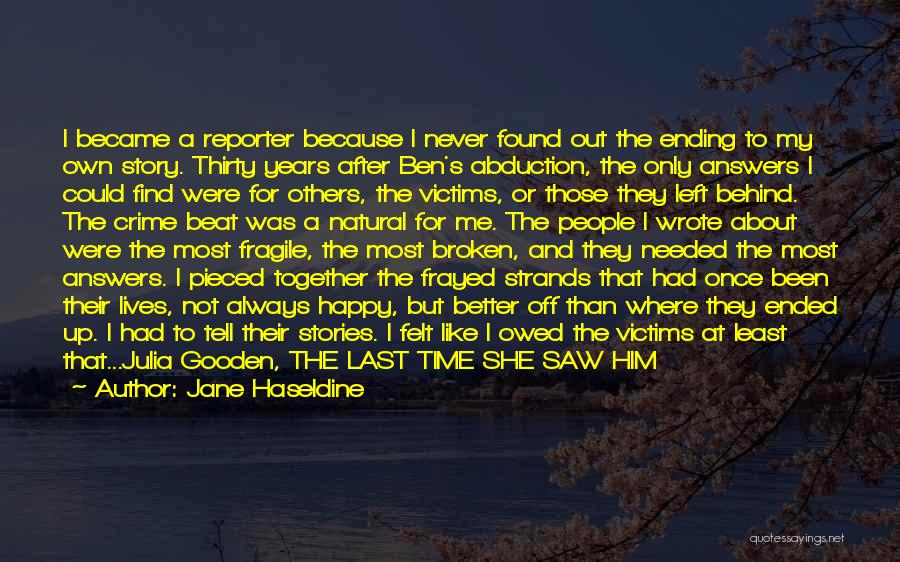
I became a reporter because I never found out the ending to my own story. Thirty years after Ben's abduction, the only answers I could find were for others, the victims, or those they left behind. The crime beat was a natural for me. The people I wrote about were the most fragile, the most broken, and they needed the most answers. I pieced together the frayed strands that had once been their lives, not always happy, but better off than where they ended up. I had to tell their stories. I felt like I owed the victims at least that...Julia Gooden, THE LAST TIME SHE SAW HIM — Jane Haseldine
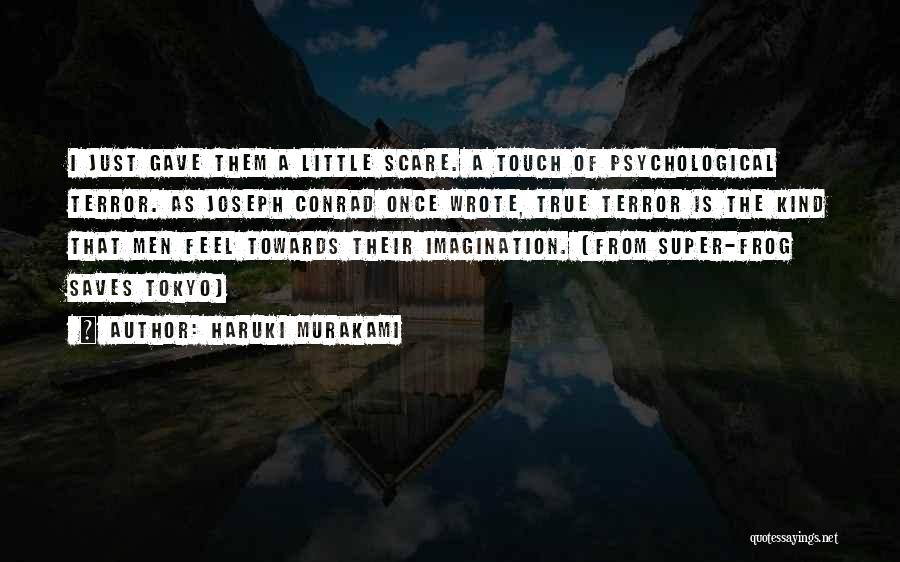
I just gave them a little scare. A touch of psychological terror. As Joseph Conrad once wrote, true terror is the kind that men feel towards their imagination. (from Super-frog Saves Tokyo) — Haruki Murakami
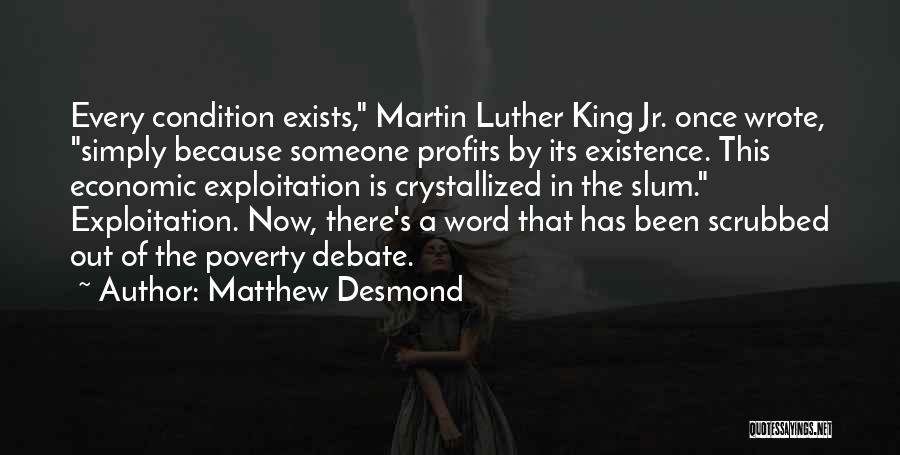
Every condition exists," Martin Luther King Jr. once wrote, "simply because someone profits by its existence. This economic exploitation is crystallized in the slum." Exploitation. Now, there's a word that has been scrubbed out of the poverty debate. — Matthew Desmond

I got my deal off MySpace. I wrote to J.R. Rotem. He is big producer. He's done a lot of stuff for Rihanna, 50 Cent, Britney Spears and etc. I thought, "Yo, this guy is really talented I want to work with him." Once I sent him message he didn't reply back. I kept on sending the messages. I kept on hitting him back like eight times a day. He eventually replied back like, "Yo, I want to hear more music." — Sean Kingston
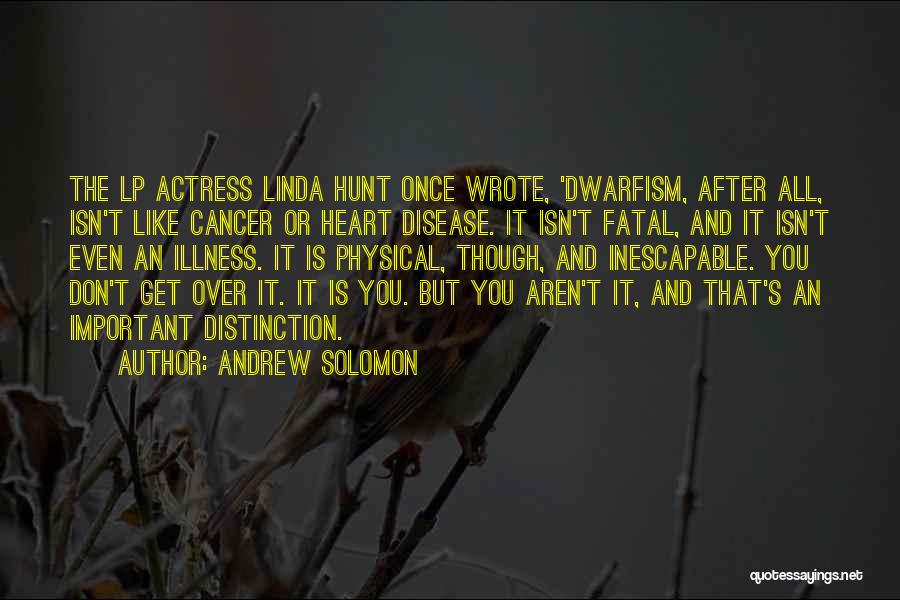
The LP actress Linda Hunt once wrote, 'Dwarfism, after all, isn't like cancer or heart disease. It isn't fatal, and it isn't even an illness. It is physical, though, and inescapable. You don't get over it. It is you. But you aren't it, and that's an important distinction. — Andrew Solomon
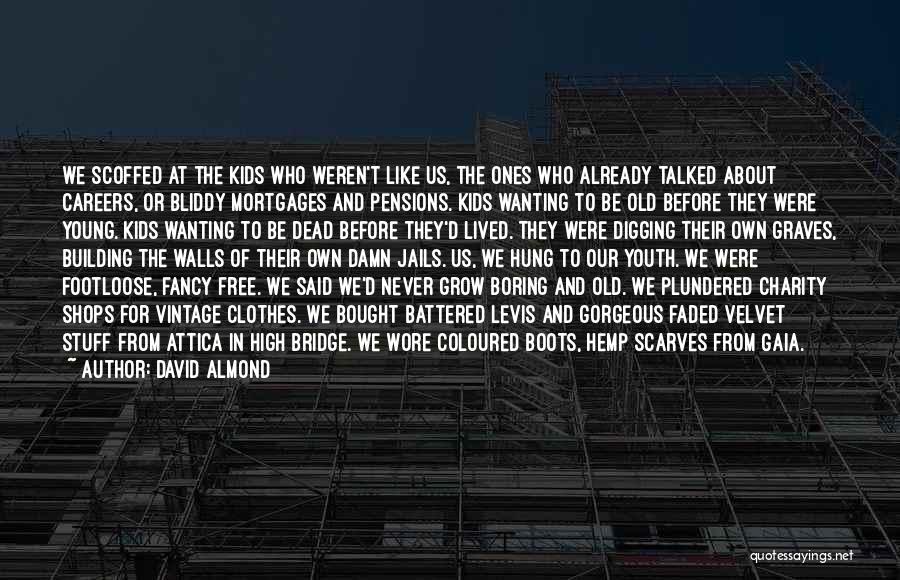
We scoffed at the kids who weren't like us, the ones who already talked about careers, or bliddy mortgages and pensions. Kids wanting to be old before they were young. Kids wanting to be dead before they'd lived. They were digging their own graves, building the walls of their own damn jails. Us, we hung to our youth. We were footloose, fancy free. We said we'd never grow boring and old. We plundered charity shops for vintage clothes. We bought battered Levis and gorgeous faded velvet stuff from Attica in High Bridge. We wore coloured boots, hemp scarves from Gaia. We read Baudelaire and Byron. We read our poems to each other. We wrote songs and posted them on YouTube. We formed bands. We talked of the amazing journeys we'd take together once school was done. Sometimes we paired off, made couples that lasted for a little while, but the group was us. We hung together. We could say anything to each other. We loved each other. — David Almond

Langston Hughes, who wrote, "That Justice is a blind goddess/Is a thing to which we black are wise:/Her bandage hides two festering sores/That once perhaps were eyes." As — C. Arthur Ellis Jr






